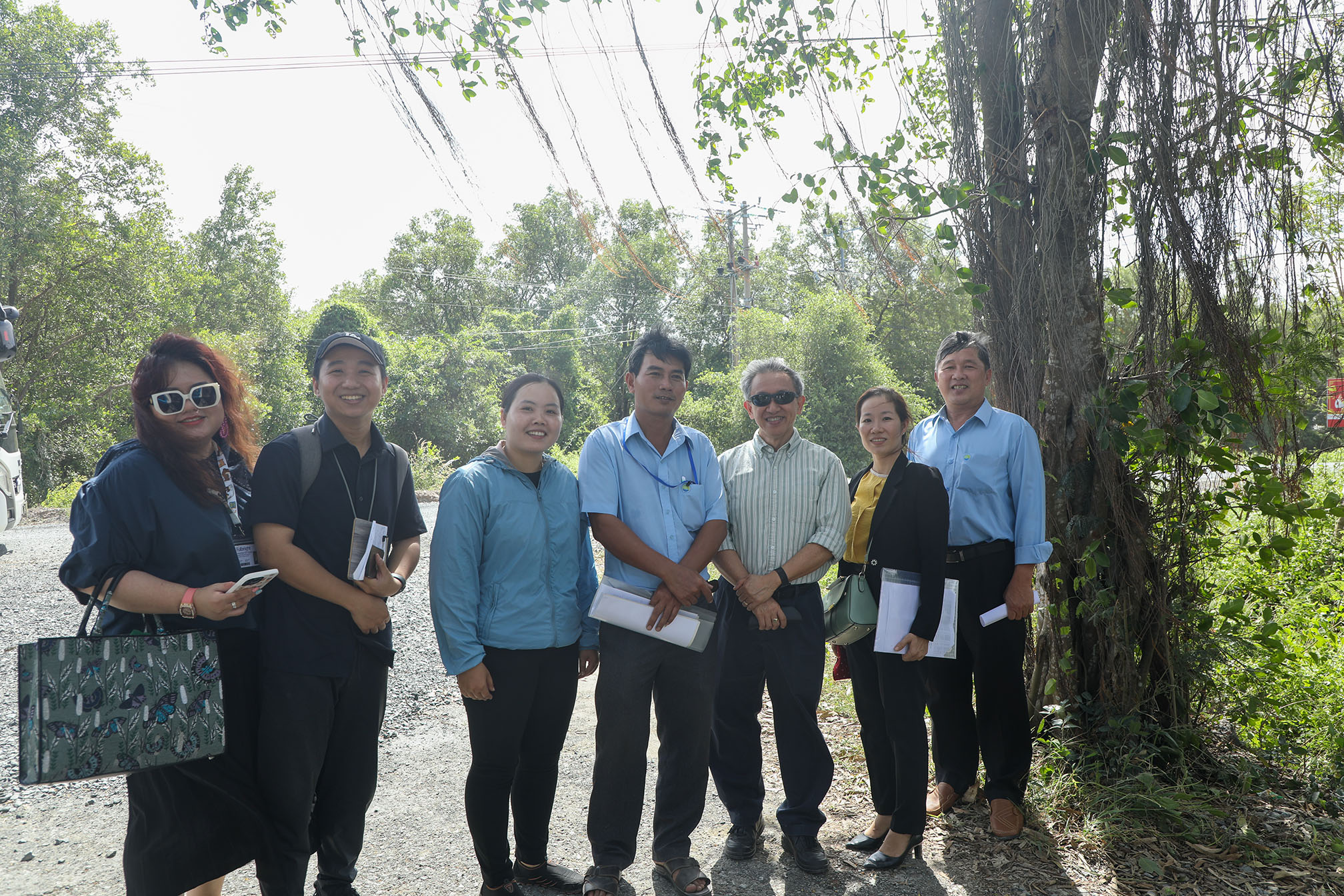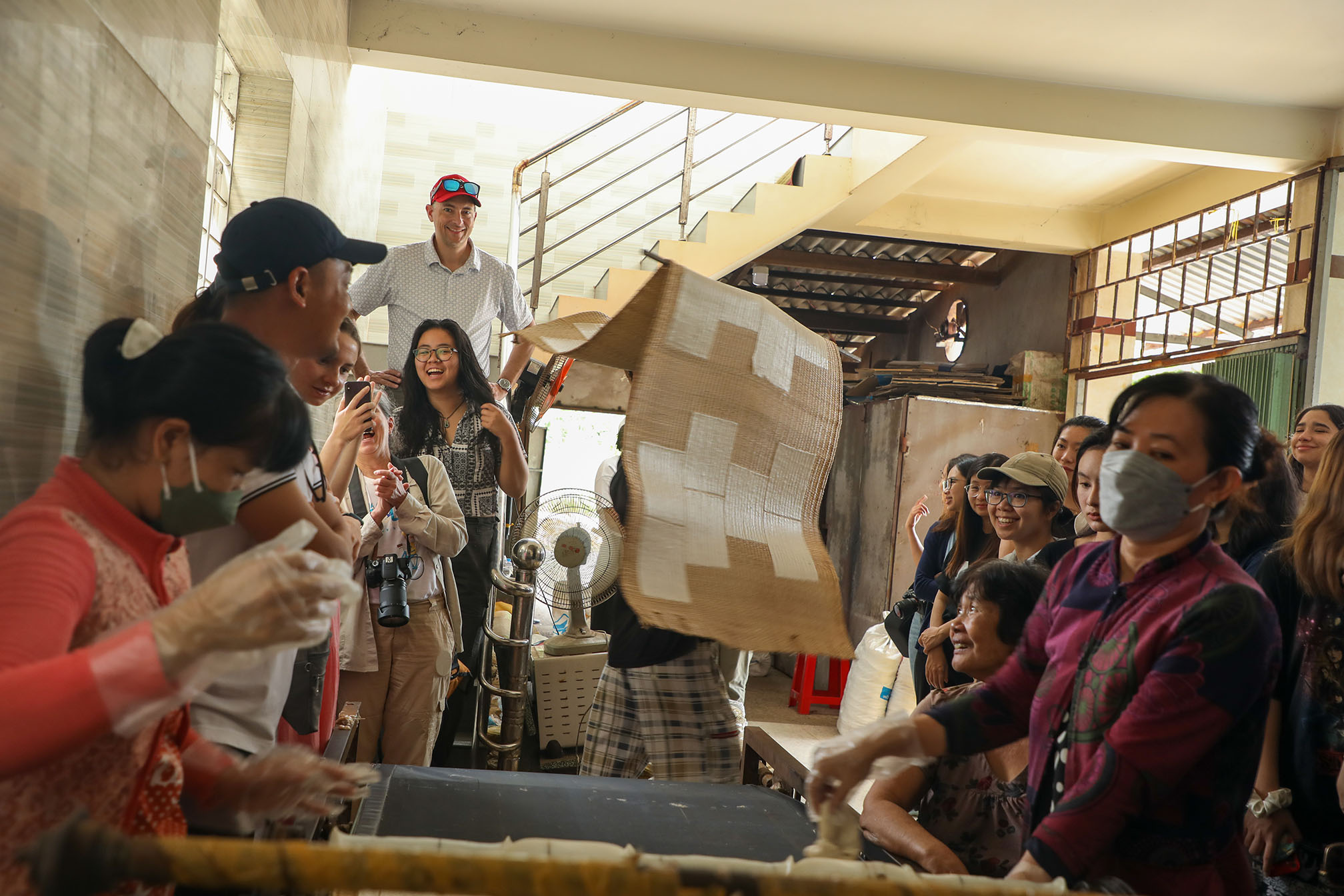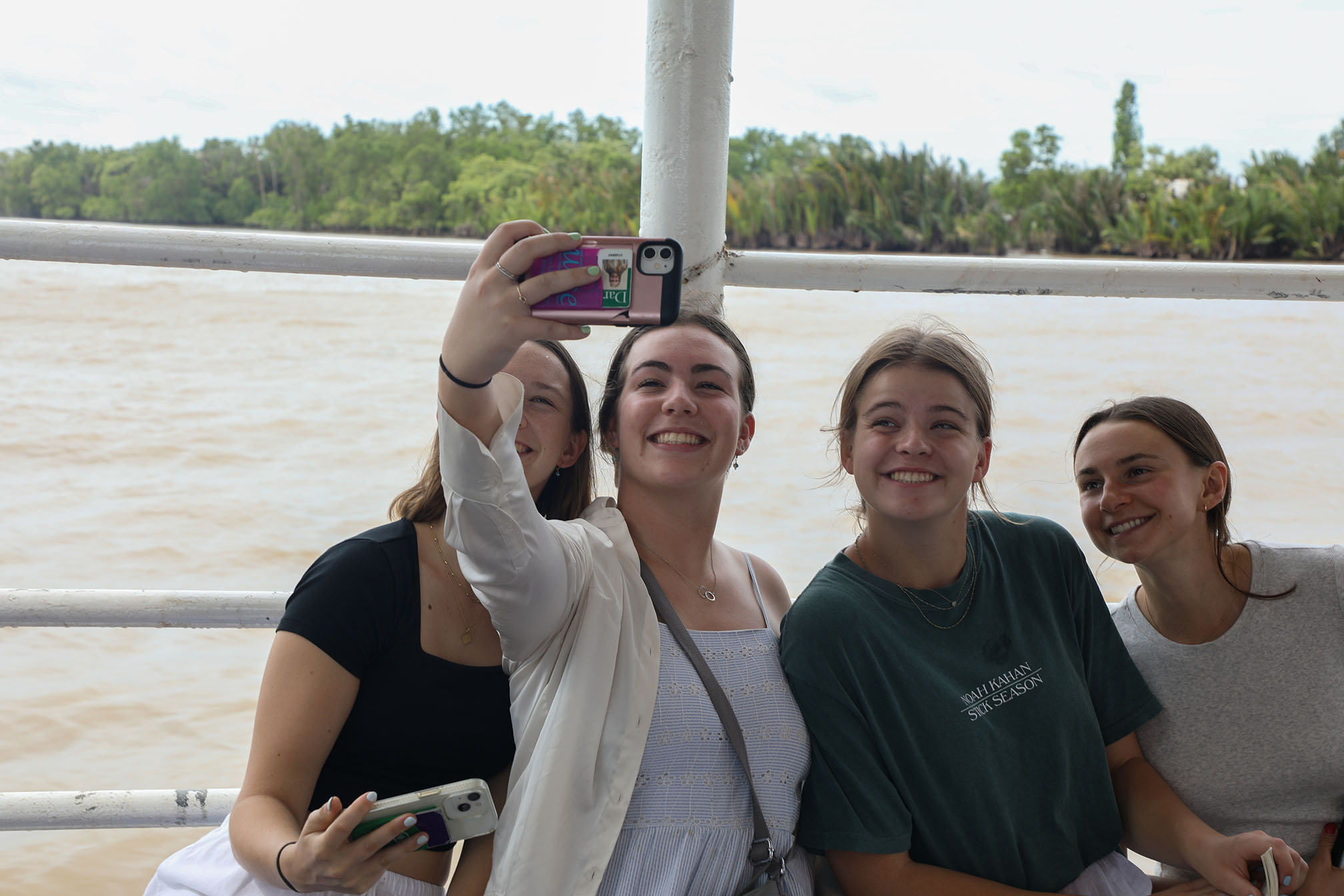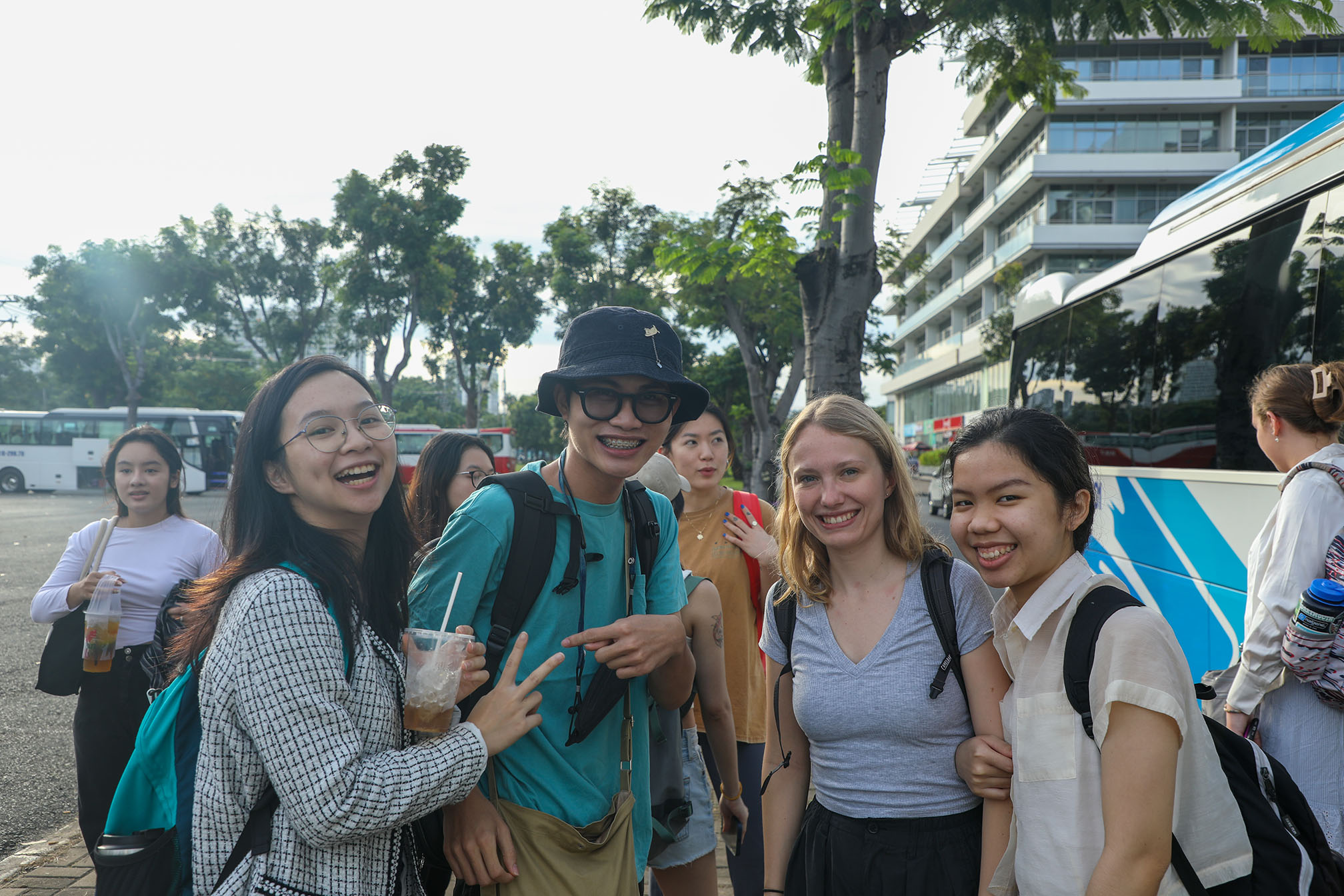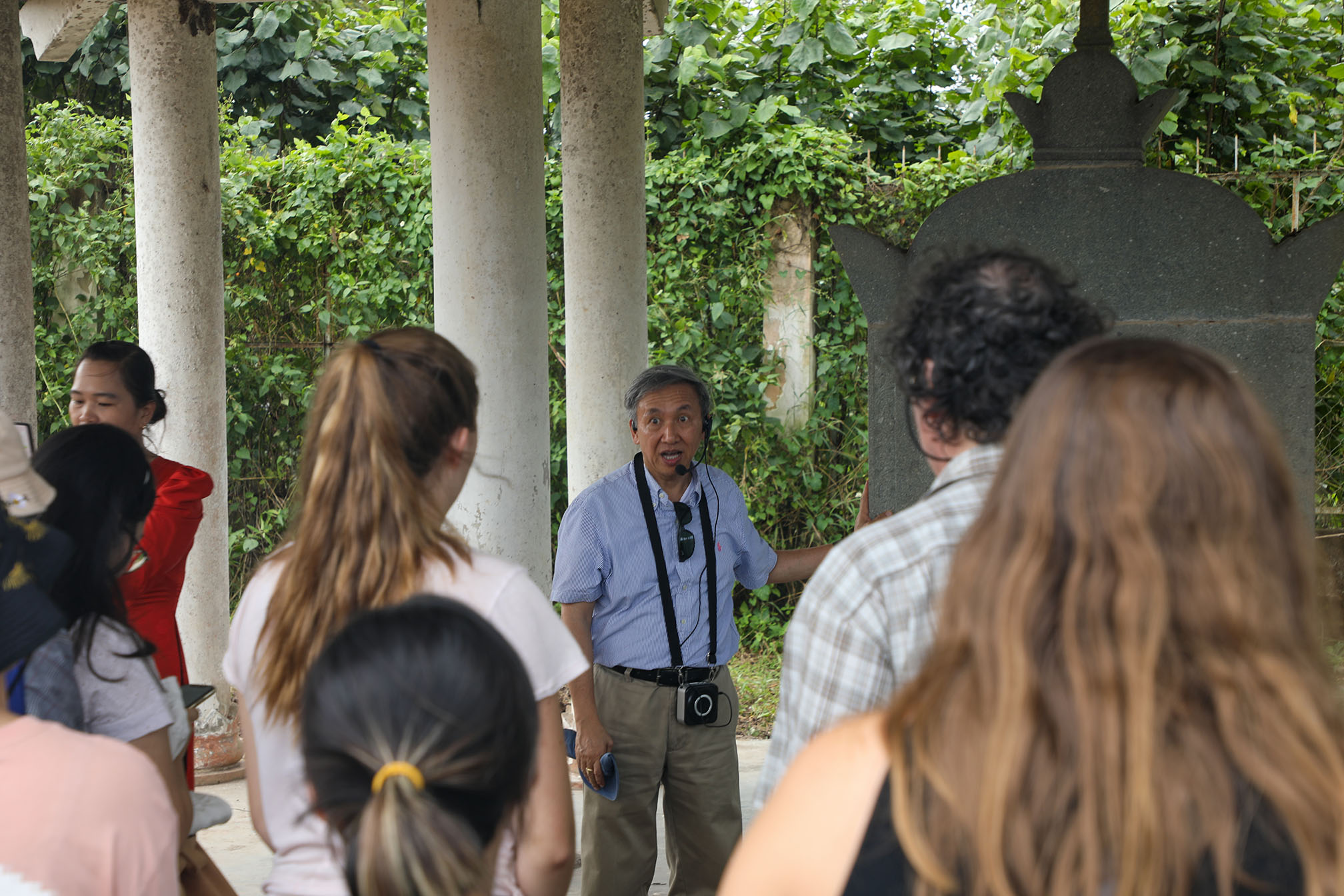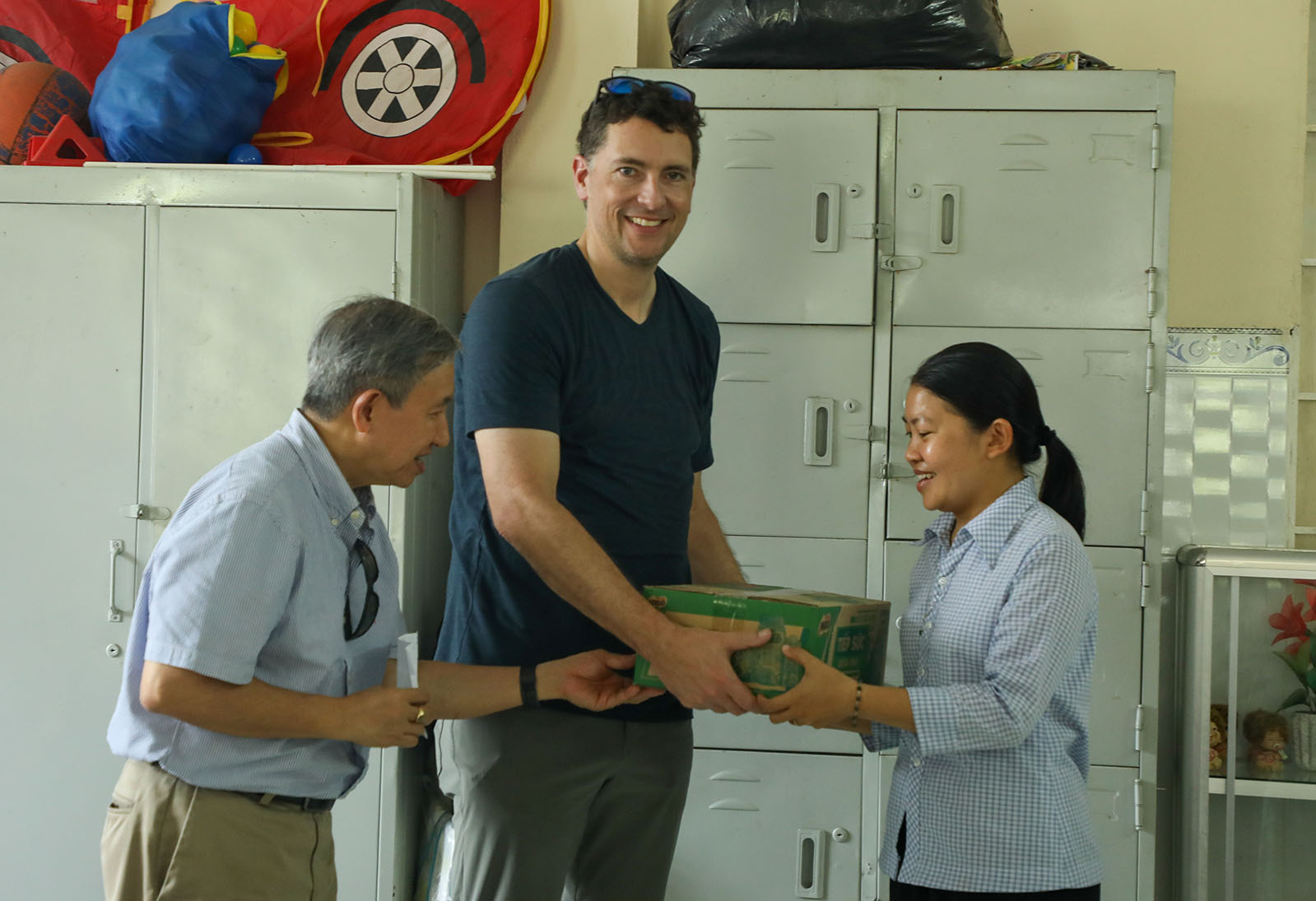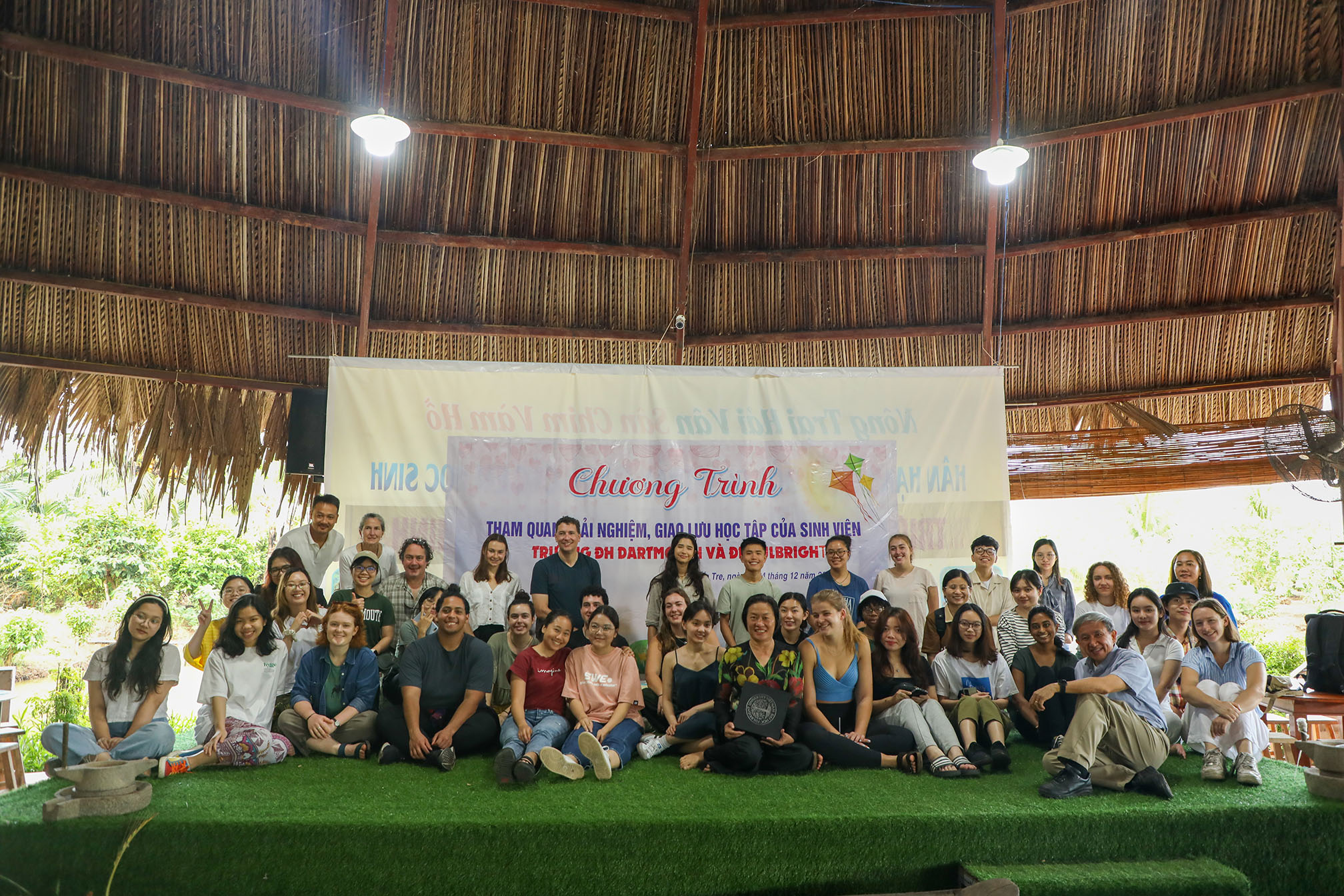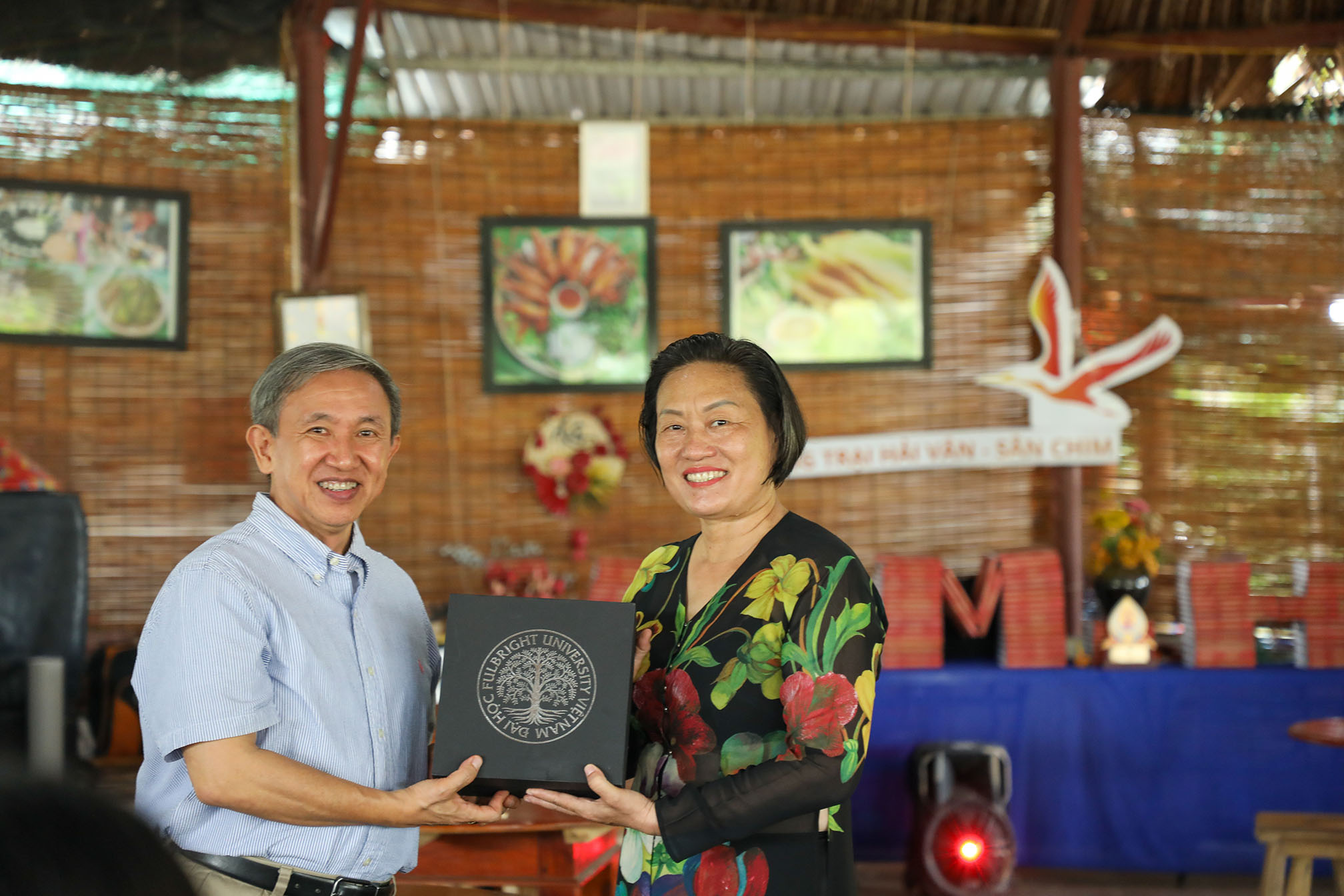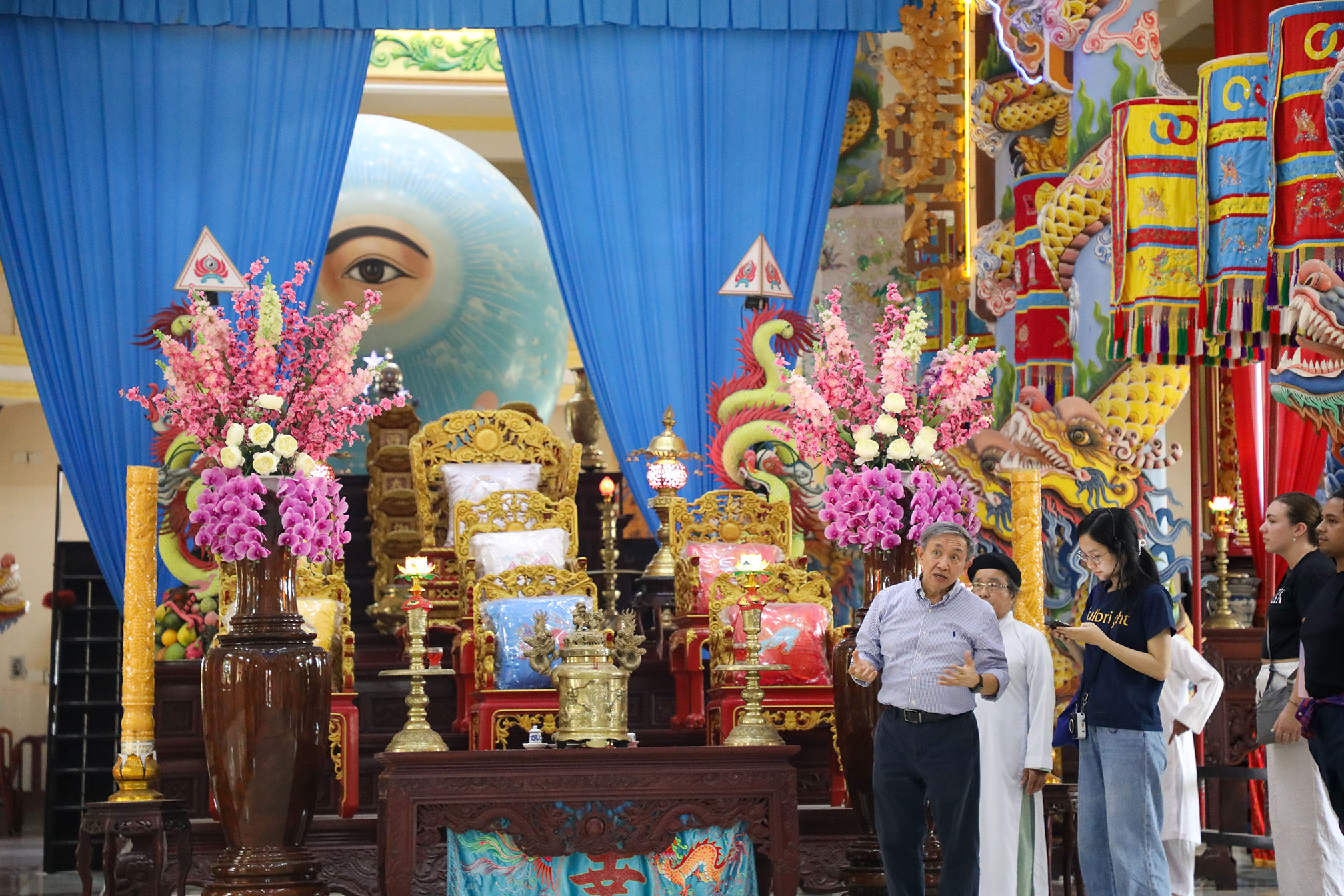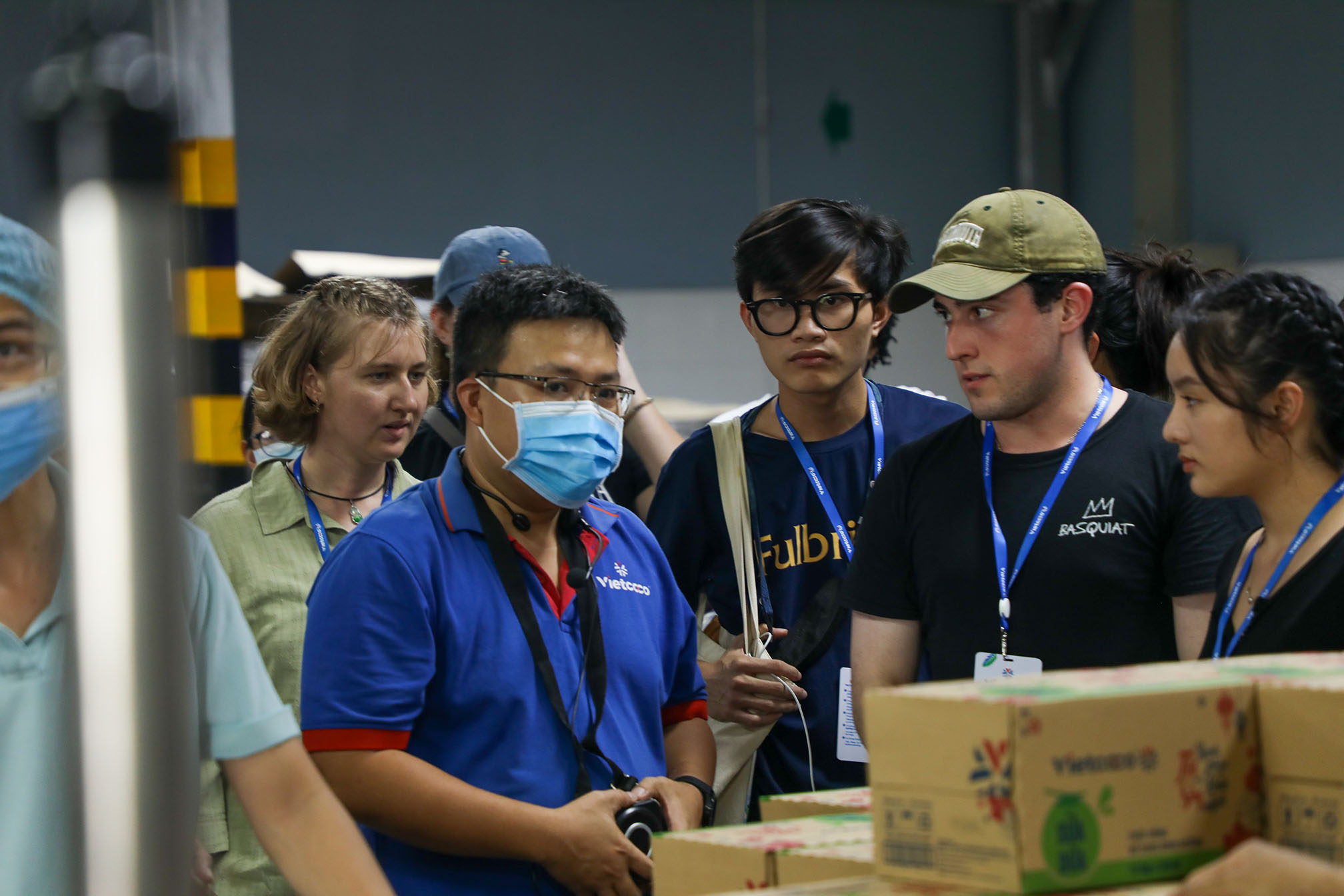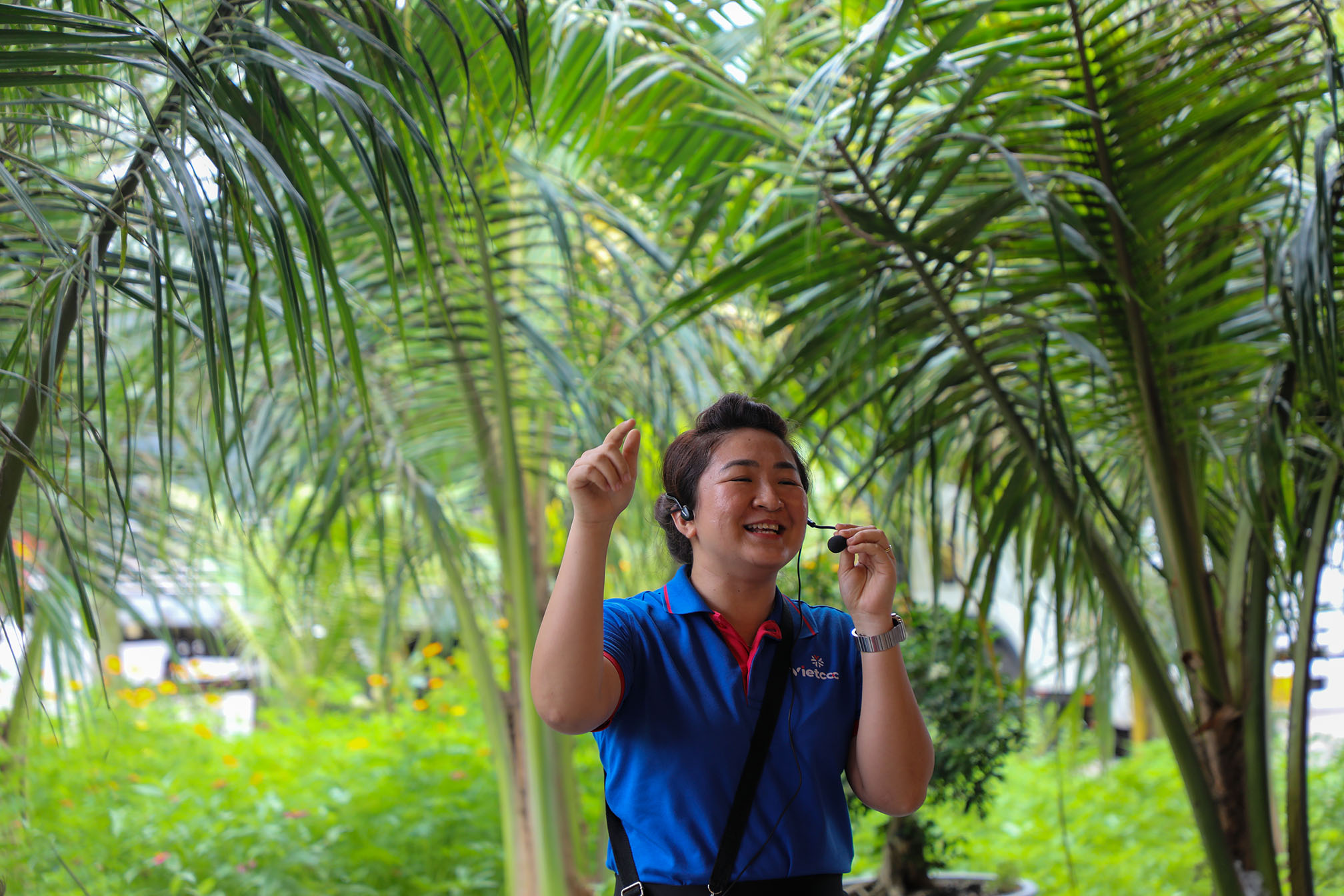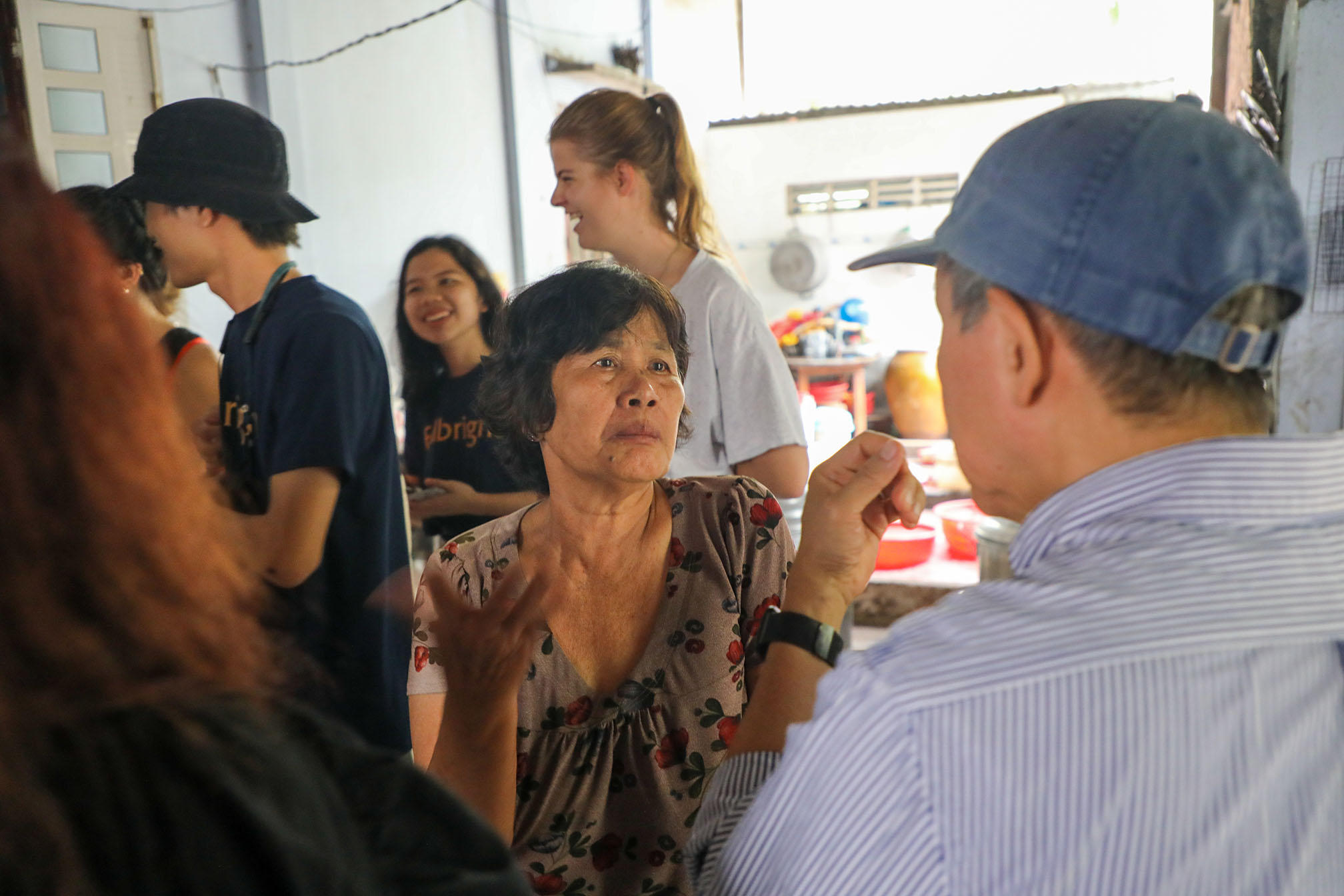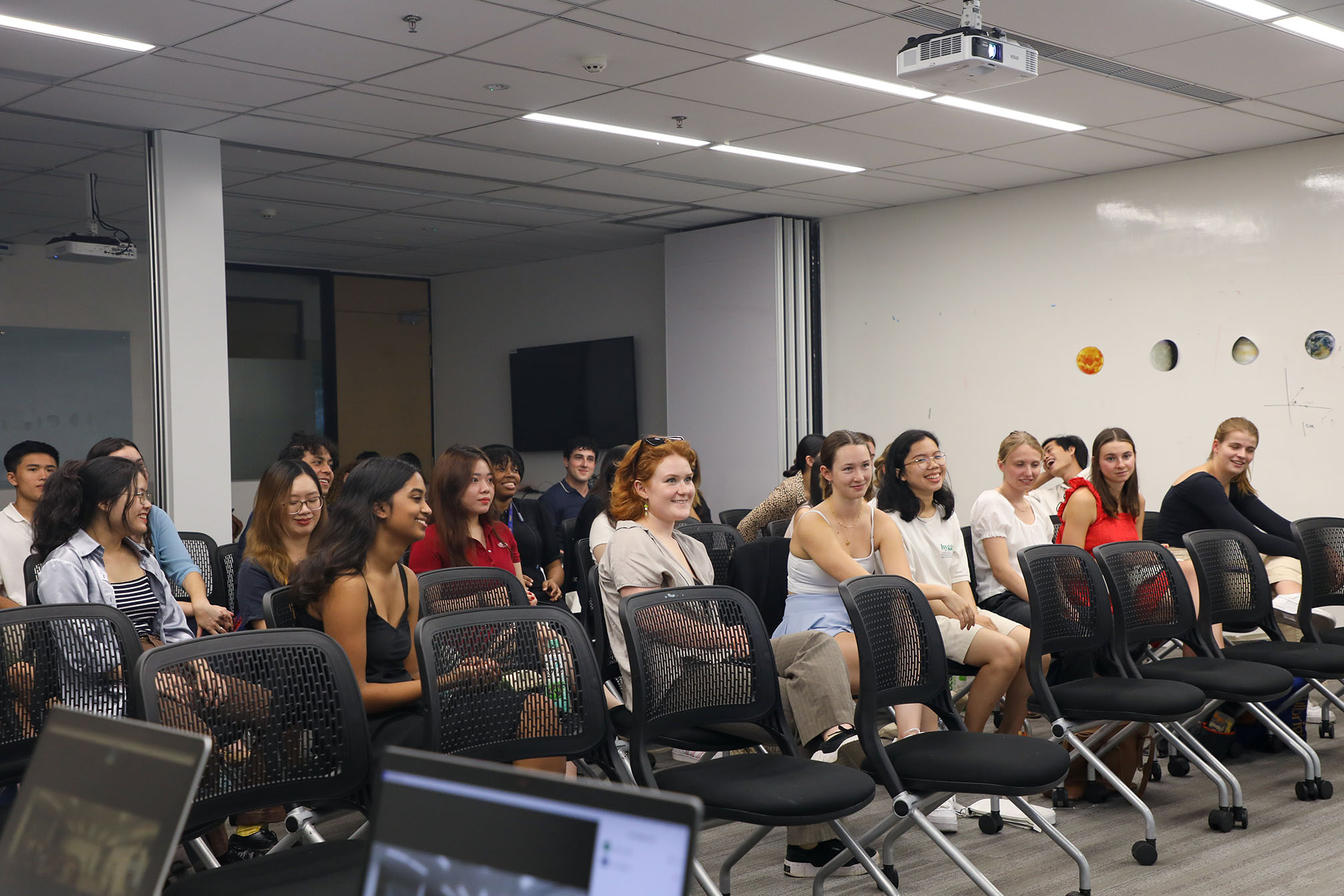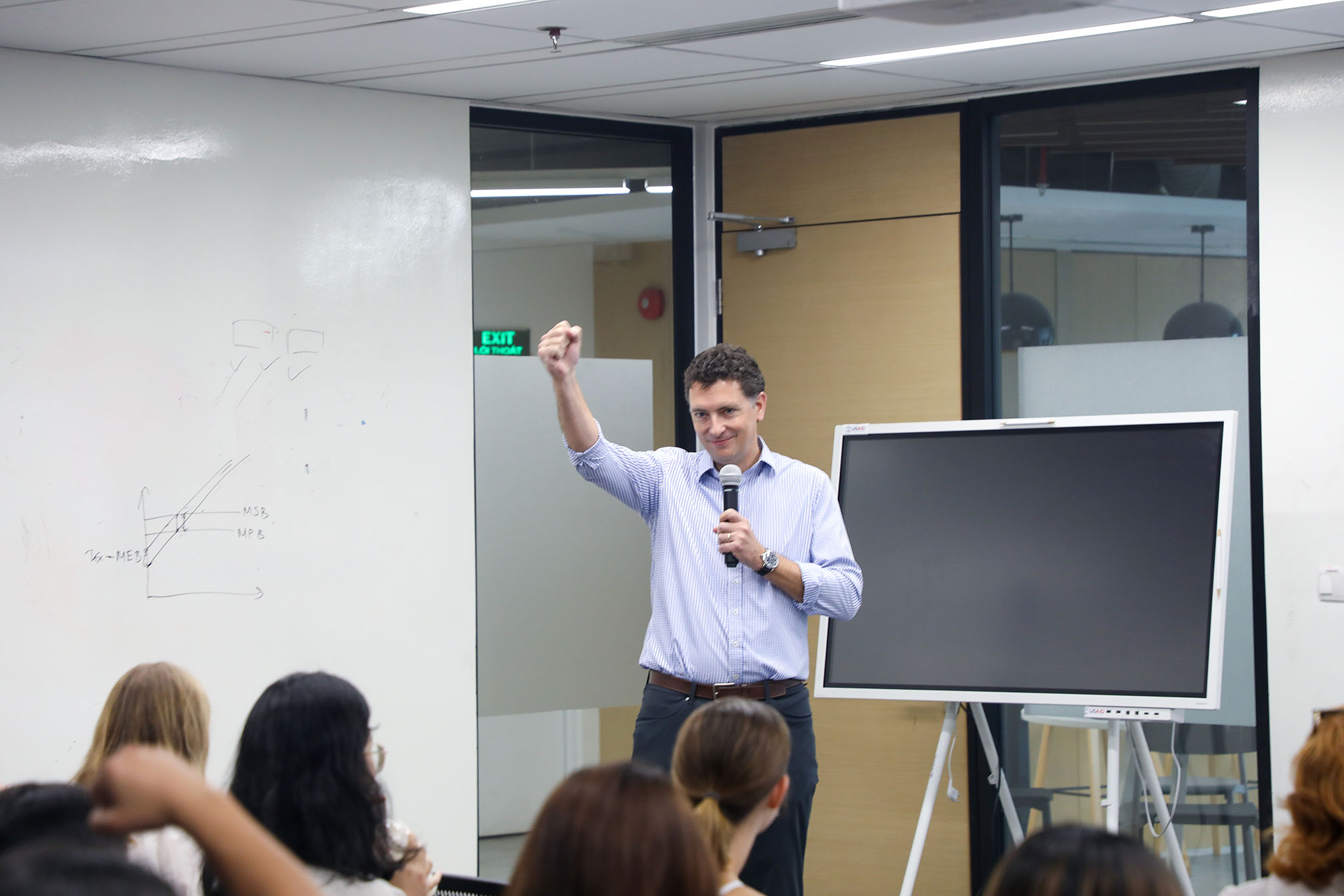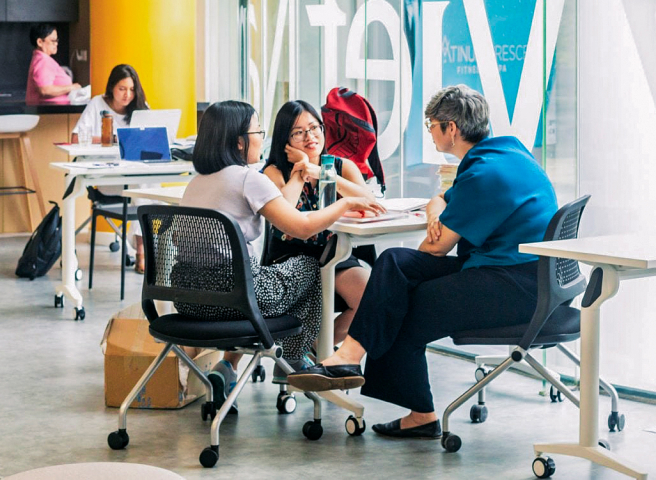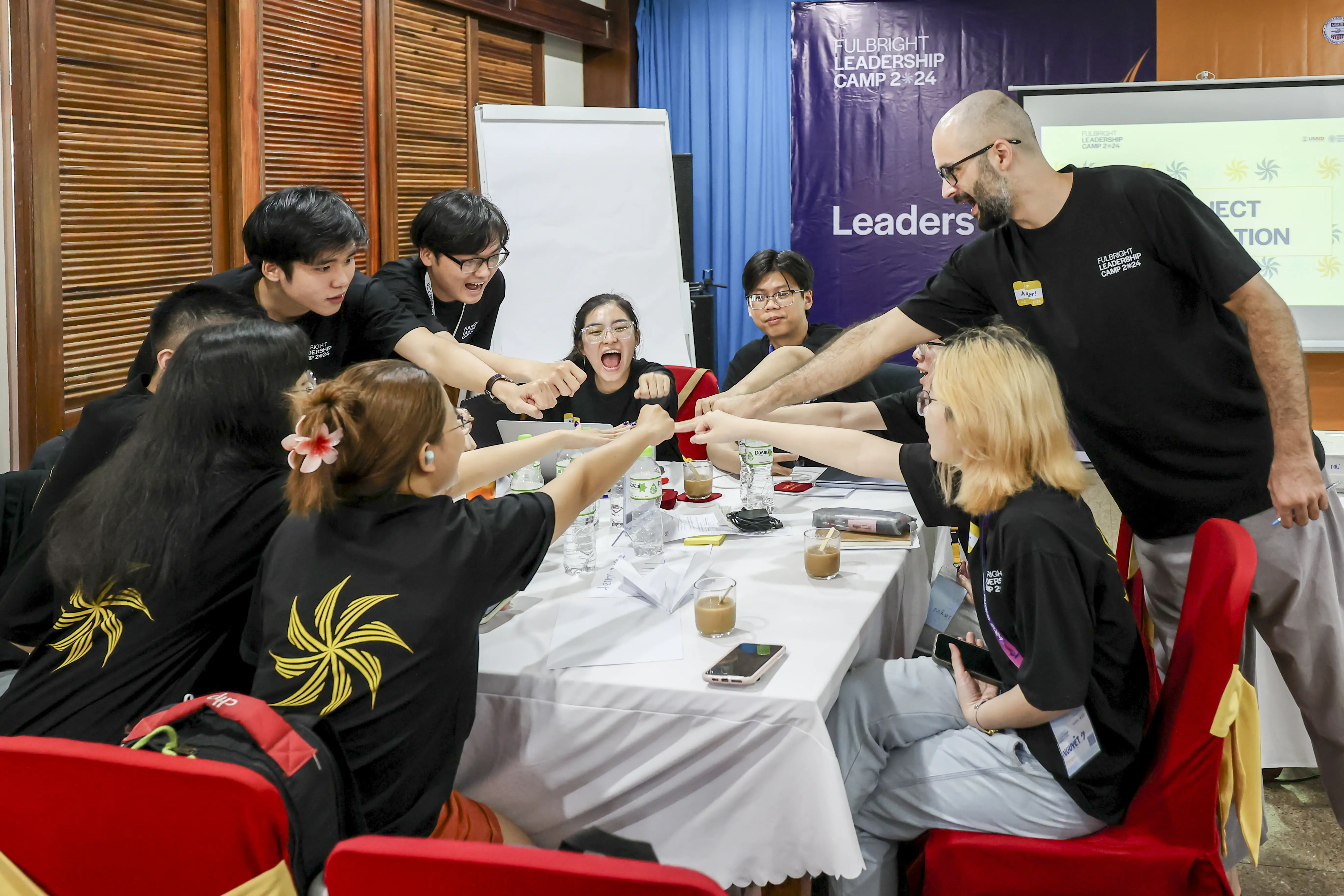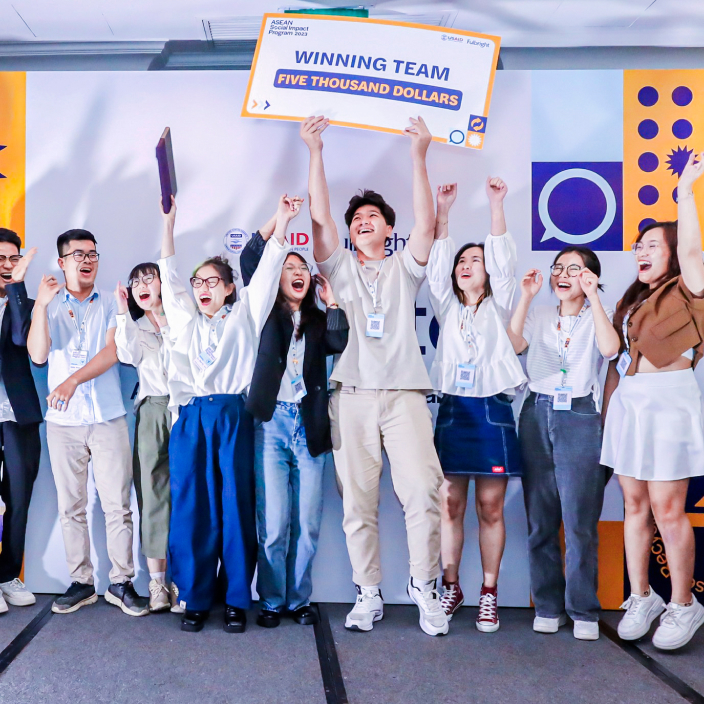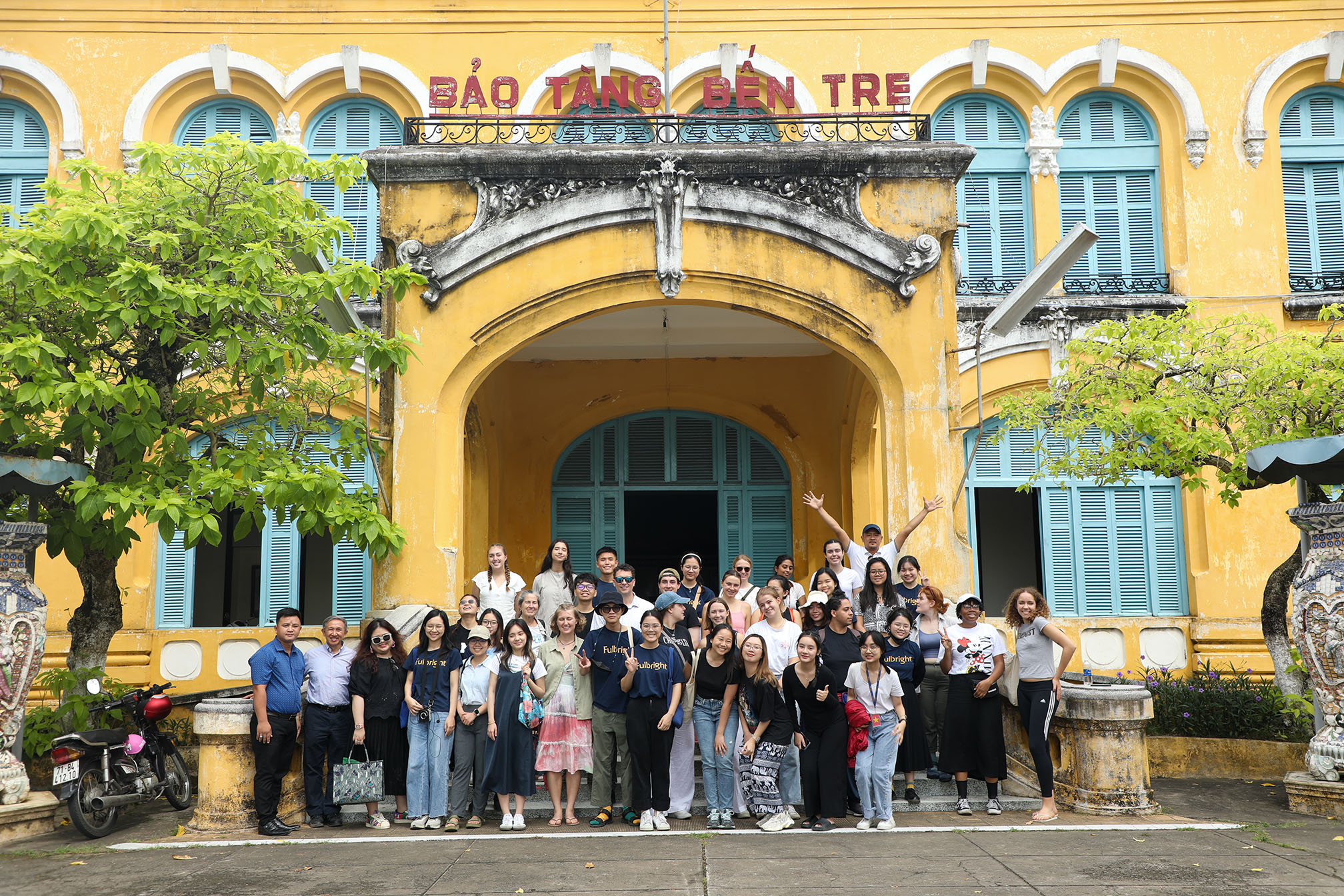
The Vietnam Studies course ‘Developing Vietnam’ is a collaboration between Dartmouth College in the United States and Fulbright University Vietnam. It allows students from both institutions to examine various facets of Vietnamese culture, society, and politics through the lens of development in contemporary Vietnam. This interdisciplinary course utilizes methodologies and perspectives from History, Environmental Studies, and Film and Literary Studies to provide a well-rounded understanding of modern Vietnam.
During the Fall term, Dartmouth and Fulbright students engaged in interactive learning through online discussions, group assignments, and a research project. In December 2022, 19 Dartmouth students and 16 Fulbright students gathered at Fulbright University Vietnam to conduct field research and present their findings in co-written research papers and team-produced documentary videos. The students participated in various activities, including roundtable discussions, interviews, video production training, peer review sessions, and field trips to Cần Giờ Mangrove Forest and Bến Tre Province.
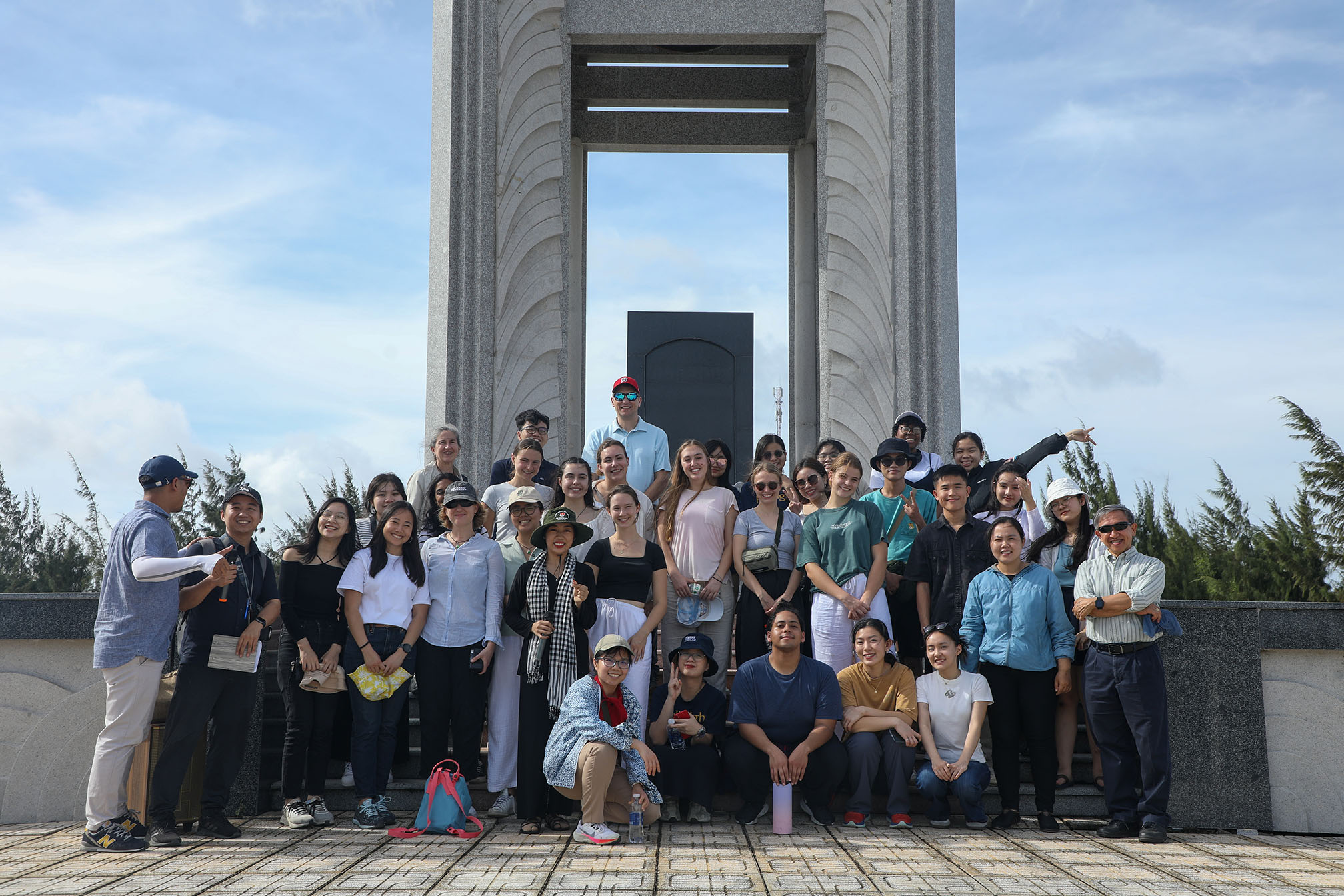
Dartmouth and Fulbright students visited Hồ Chí Minh Sea Trail in Bến Tre Province
A collaborative journey of discovery
The Developing Vietnam course is the result of a conversation between the two long time friends and Harvard alumni, Dr. Nguyễn Nam, Director at the Vietnam Studies Center at Fulbright University Vietnam, and Dr. Edward Miller, Associate Professor of History at Dartmouth College. Designed for those who take an interest in Vietnam, the course covers not only the country’s history, but also many aspects of contemporary Vietnamese society. The curriculum embraces a collaborative learning design that allows students from both universities to work together and generate an understanding of Vietnam based on their shared areas of interest.
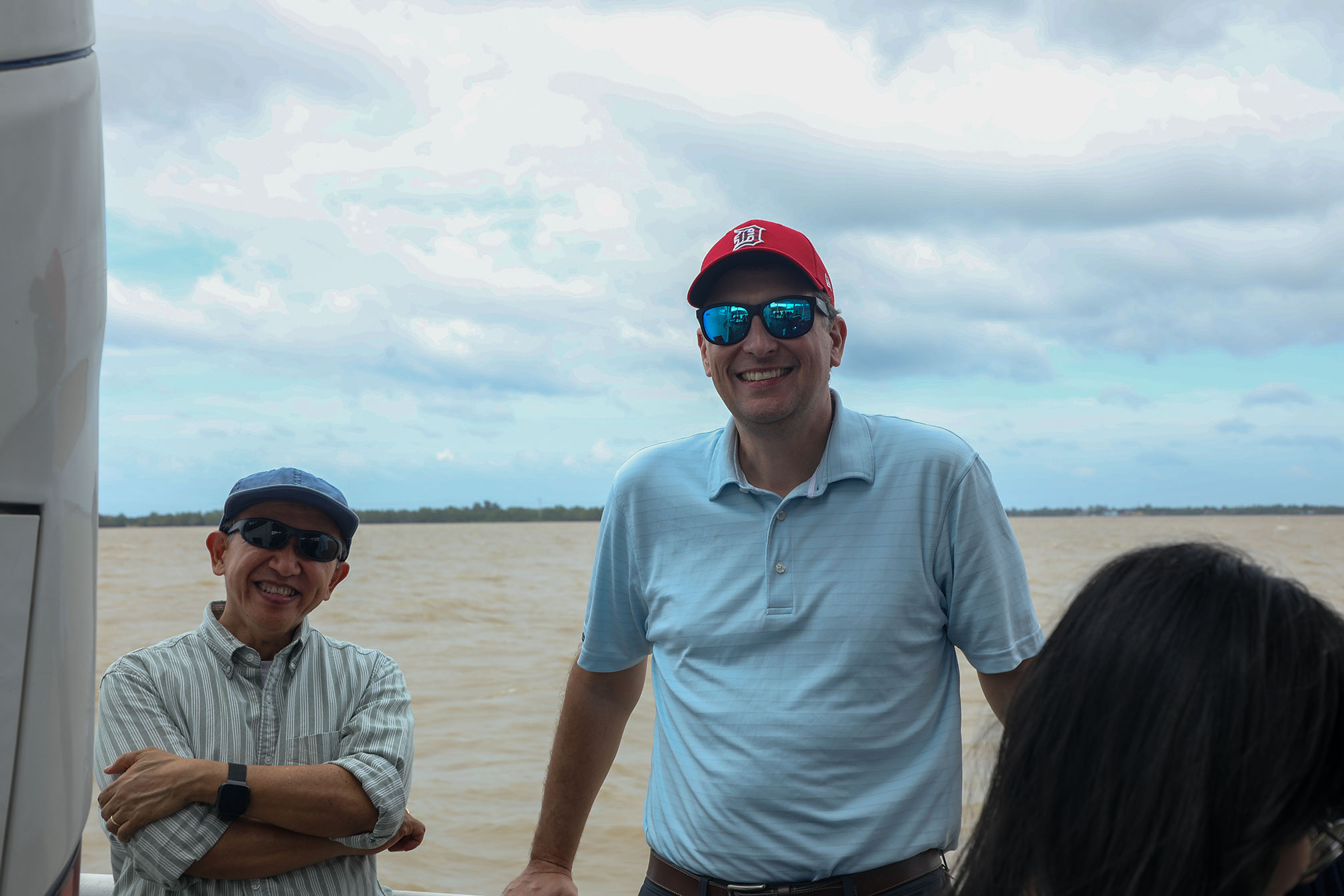
Two long time friends and Harvard alumni, Dr. Nguyễn Nam, Director at the Vietnam Studies Center at Fulbright University Vietnam, and Dr. Edward Miller, Associate Professor of History at Dartmouth College
The Developing Vietnam course received a large number of applications from Dartmouth students, indicating a growing interest in Vietnam among international students, particularly in contemporary Vietnam. According to Dr. Edward Miller, “The application process was highly competitive. We received twice as many applicants as the spots we had. During the interview round, we selected the most suitable candidates who were strongly interested in Vietnam, who were excited to study abroad, and who were willing to engage in intensive teamwork with Vietnamese students.”
“I used to study in Taiwan for a year and a half during highschool. And I know that Taiwan and Vietnam have followed pretty similar paths of development, at least from what I’ve heard from Thầy Nam and Thầy Ed. So, this program seemed really well suited to my interest in figuring out and learning more about development in East Asia,” shared Scott Jason Tamkin, senior student from Dartmouth College. “This is really the first time I’ve been able to conduct research at a college level with other students who aren’t from America. I absolutely love working with Fulbright students. It was difficult at first to work with them over zoom because of the time difference. But I think we have a really great group dynamic. And when we meet each other in person, we work really well.”
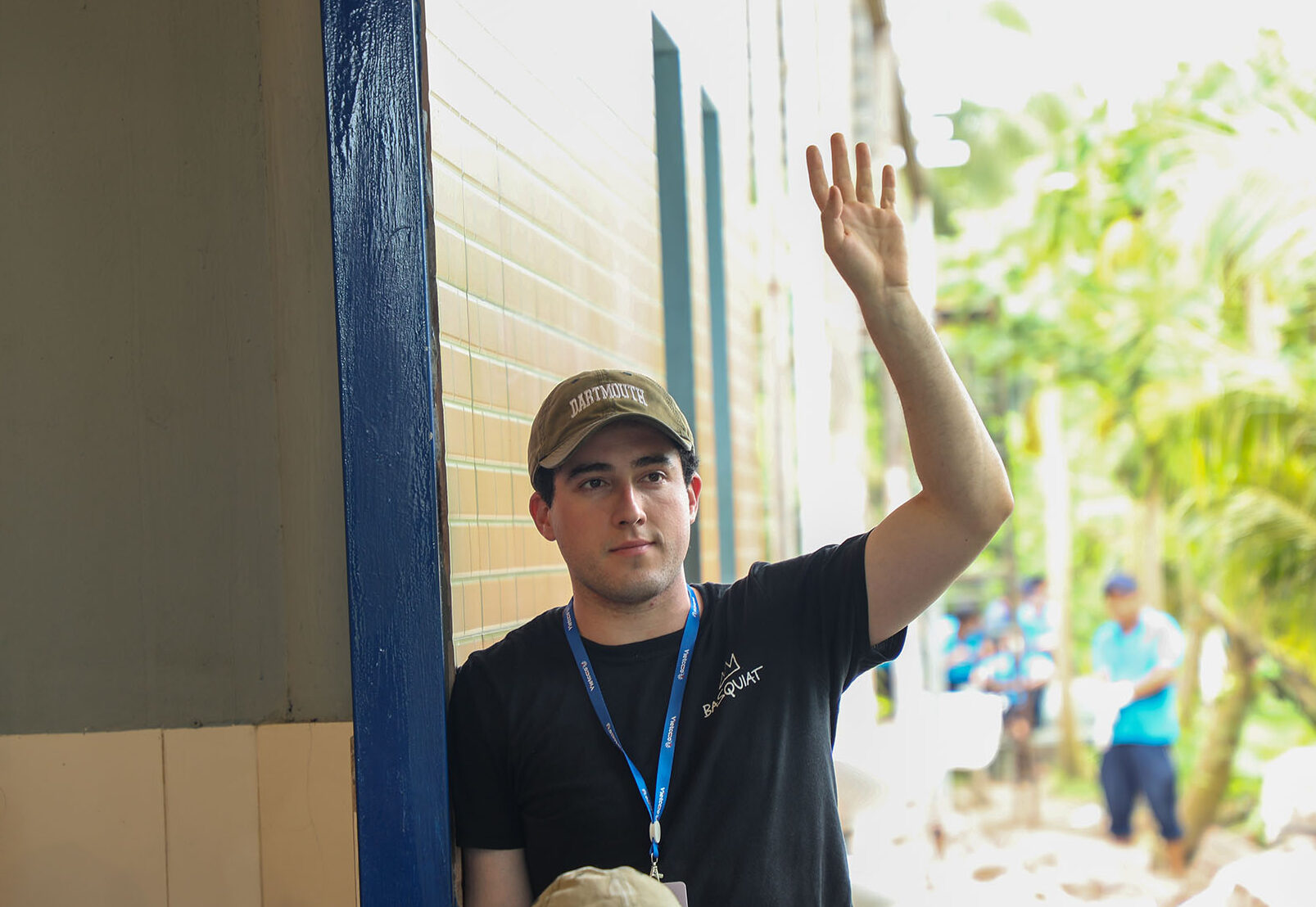
“This program seemed really well suited to my interest in figuring out and learning more about development in East Asia,” shared Scott Jason Tamkin, senior student from Dartmouth College
During a trip to Bến Tre Province, Nguyễn Hà Linh (Class of 2024) and Lê Thị Quỳnh Trang (Class of 2025), members of the Nuclei team, also shared their wonderful experiences collaborating with their Dartmouth peers. As senior students, their Dartmouth counterparts consistently pushed them to both broaden and delve deeper into their research topic. Initially, their team’s research design only focused on contemporary art in Vietnam, but after visiting the Bến Tre museum, they decided to expand it to include historical dimensions.
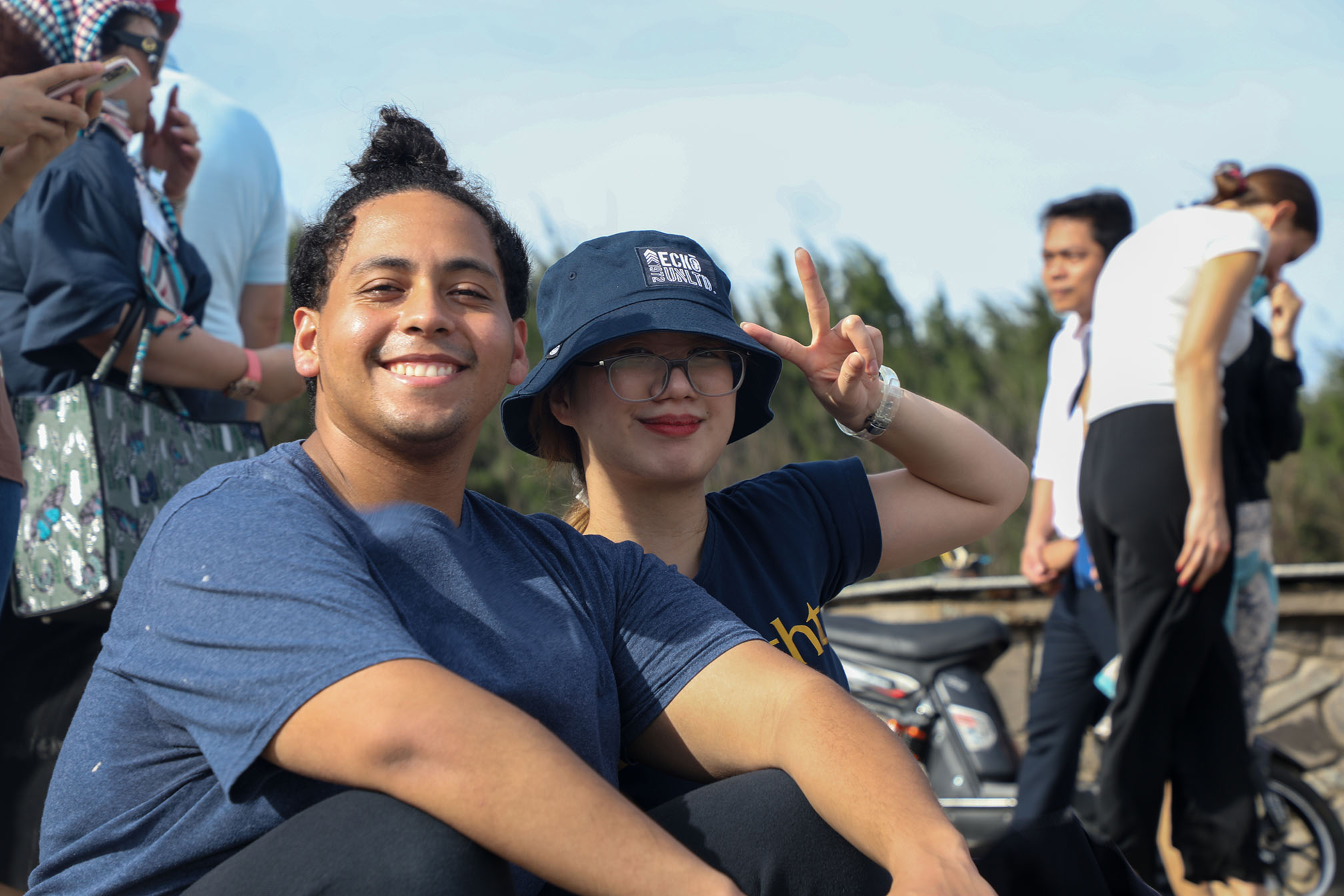
Liberal arts students from both universities are truly inspired to embrace the power of learning and intellectual exploration. “I absolutely love this course! It’s been an amazing experience both in and out of the classroom and has really opened my eyes to the fact that university education is not just about preparing for the future, but also about nurturing and cultivating intellectual curiosity. It’s been truly enriching and I’m so glad I decided to take it,” shared Nguyễn Viên Nhi, student of Class of 2025.
A multifaceted research approach to contemporary Vietnam
From the outset of the course, students from Dartmouth and Fulbright were divided into six joint teams, namely Vietconomists, Di Nhau, The Green Cats, The History Chicks, Nuclei, and Vietnam Voyagers. Each team designed and carried out a research project related to some aspect of development in contemporary Vietnam. In addition to class activities like lectures and field trips, the teams also conducted in depth interviews, museum visits, and group meetings to work on their specific research topic.
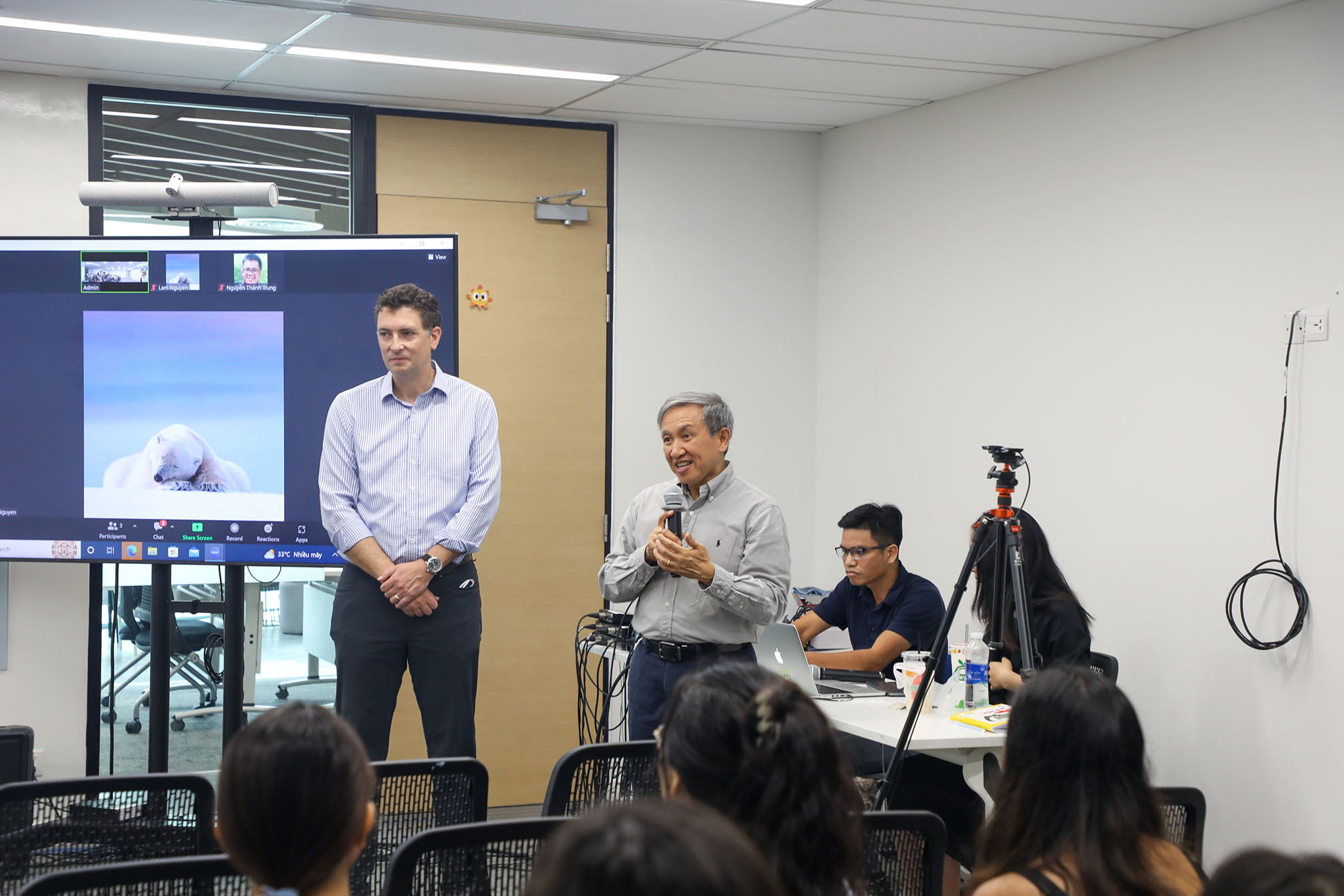
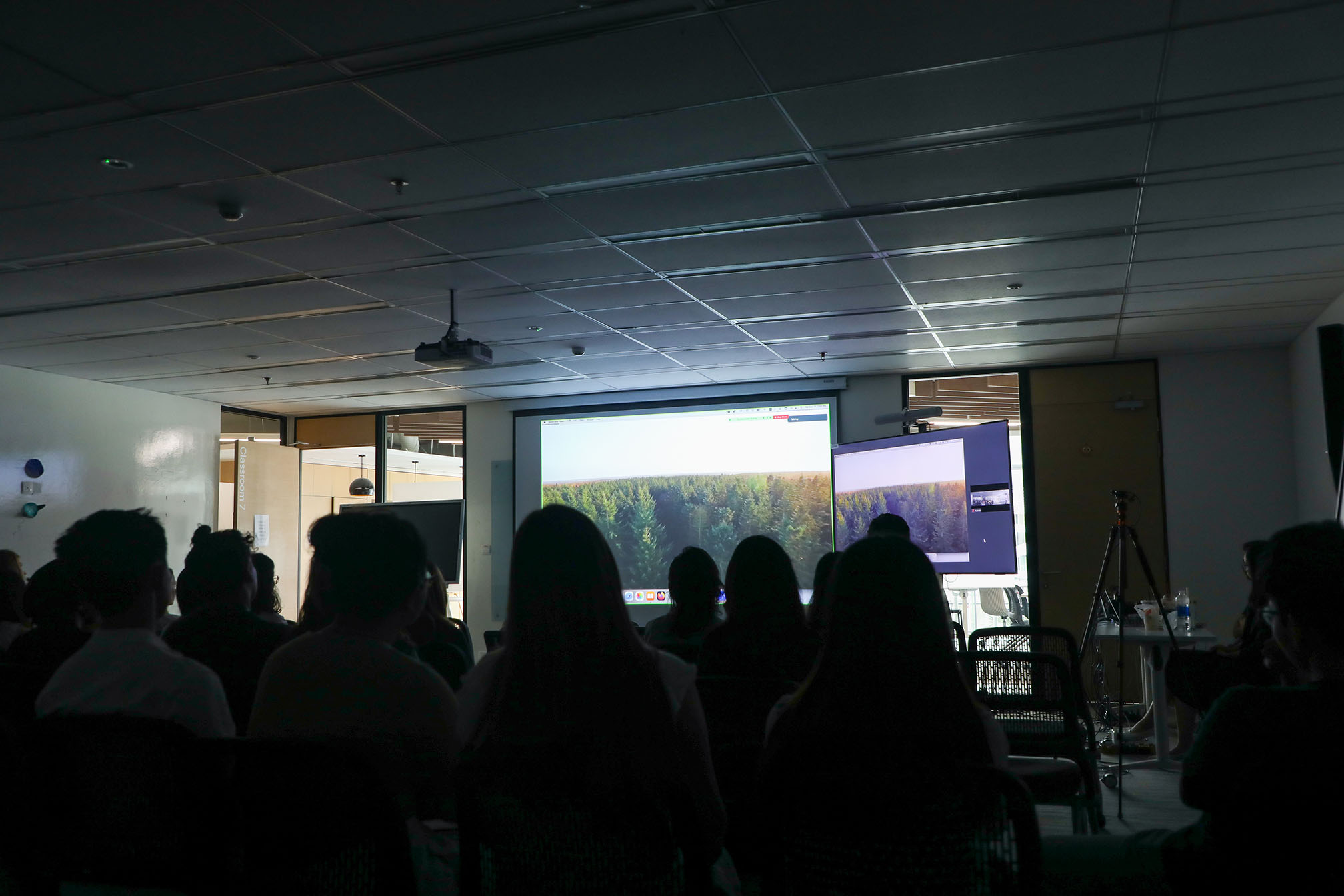
The six joint teams delved into various aspects of contemporary Vietnam, including traditional medicine, folk tales, environmental issues in Bến Tre Province, contemporary Vietnamese art, the contribution of the Friday group, and the development of Phú Mỹ Hưng urban area. After extensive collaboration, the research projects undertaken by the students were presented in the form of documentaries at the conclusion of the course. Each group was given 15 minutes to present their videos and 10 minutes for Q&A and discussions.
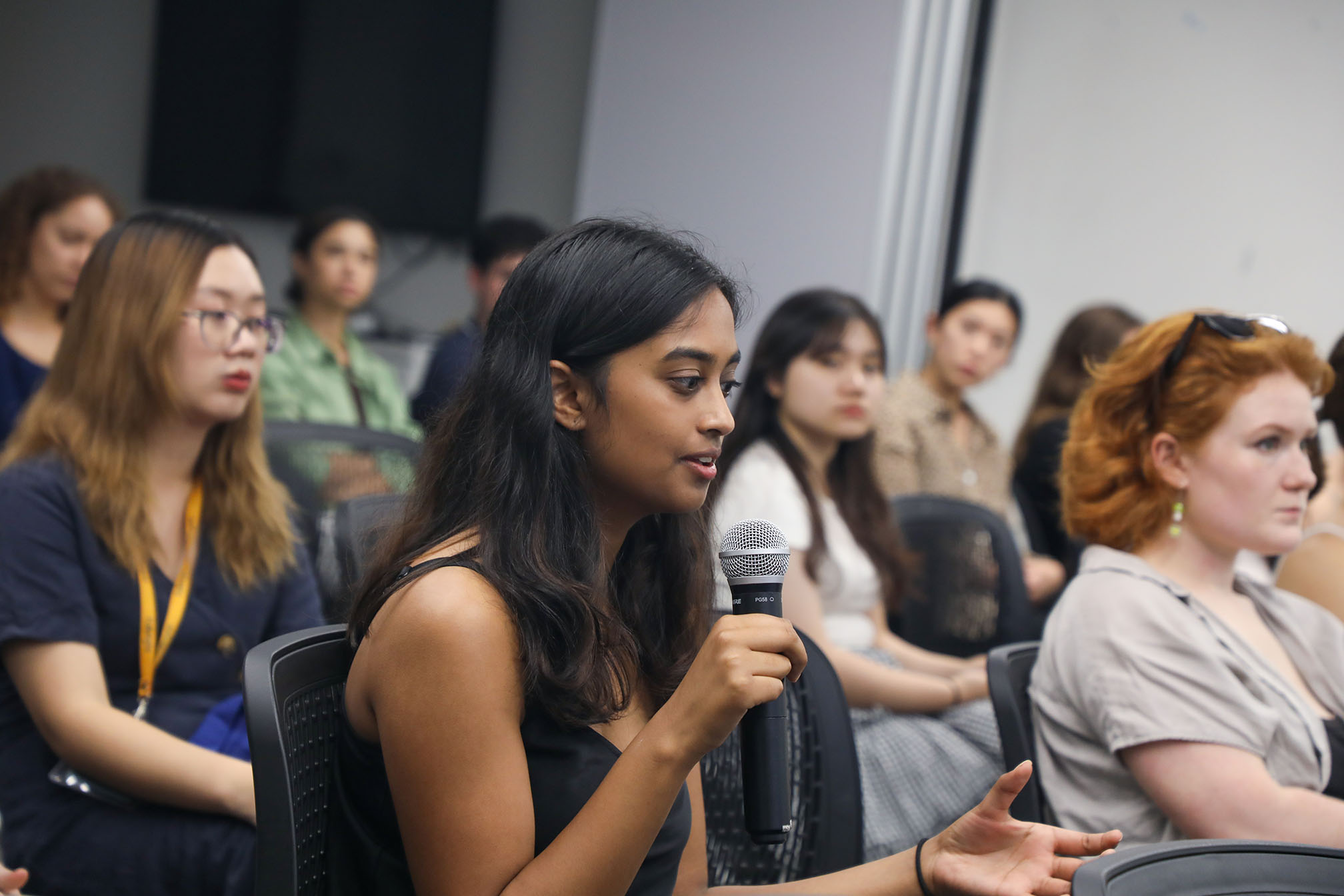
The Vietconomists group explored how Buddhist and Catholic organizations in Ho Chi Minh City use traditional medicine for charity. Both of them offer free treatment based on their commitment to providing medicine for the poor, with the Buddhist foundations motivated by karma and the Catholic clinics driven by their evangelical responsibility of spreading the love of Christ.
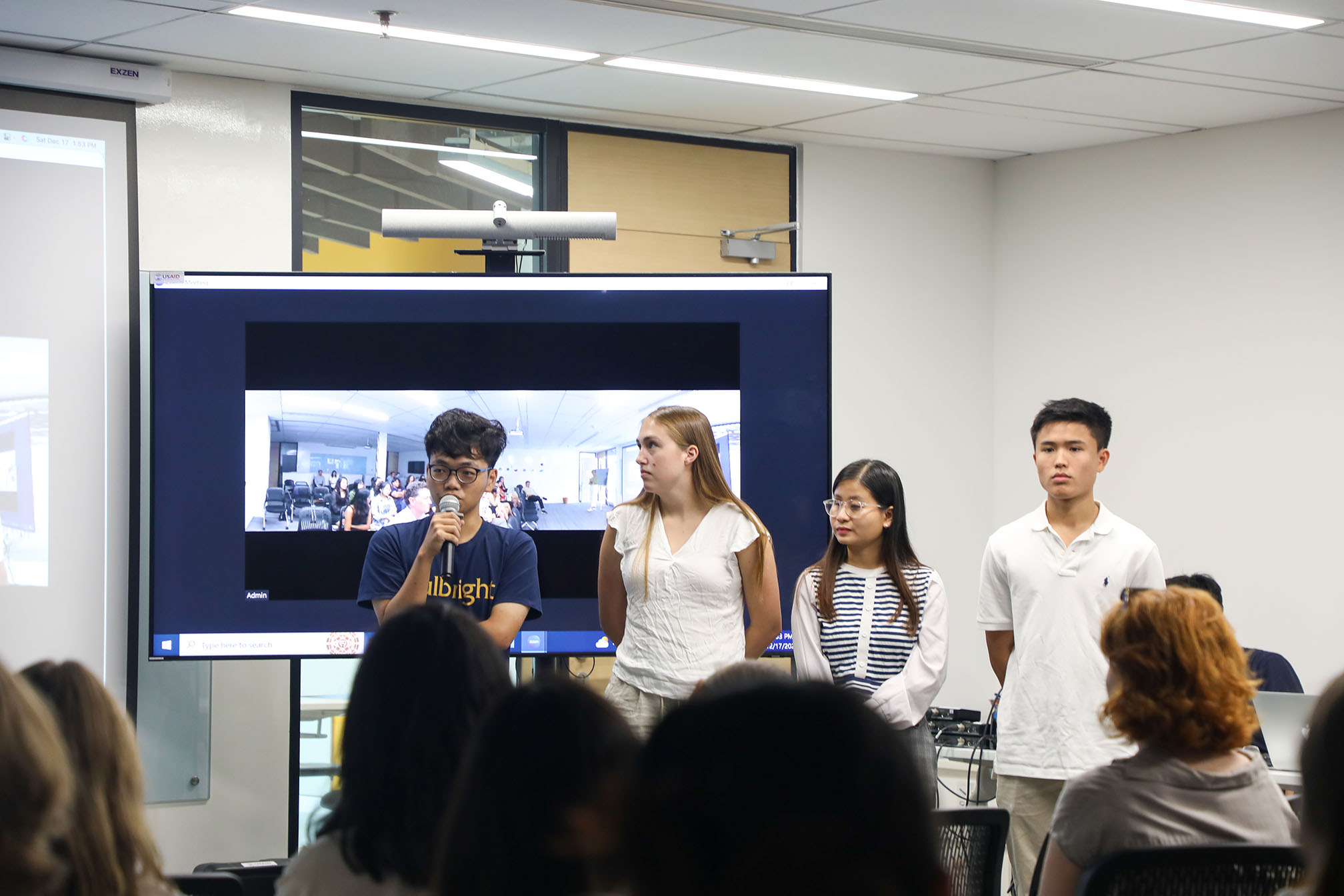
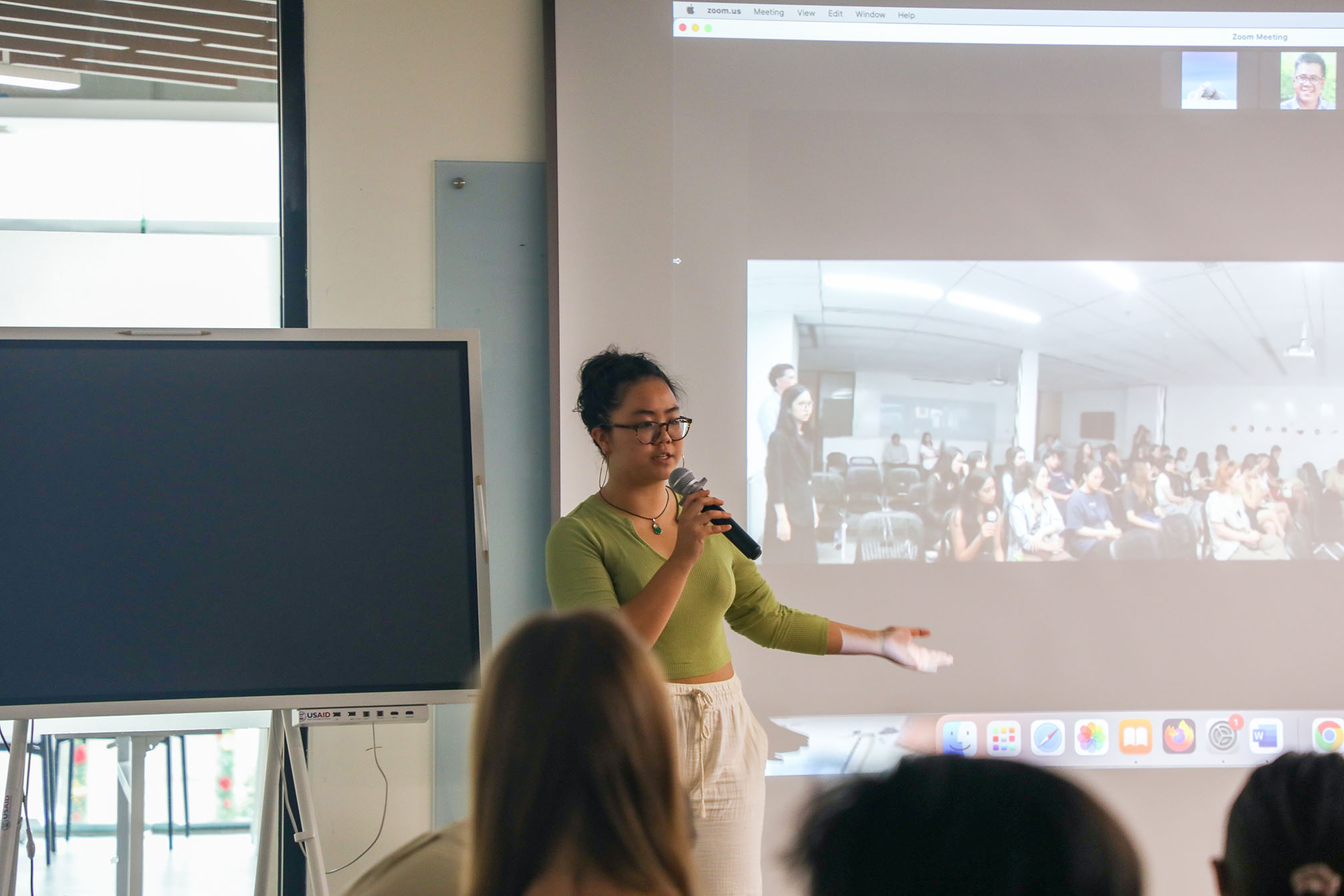
The Di Nhau group analyzed gender representations and ideal womanhood in three versions of the famous Tấm Cám folktales, including the text and two film adaptations. They explored how these portrayals reflect the social and historical contexts in which they were produced. The three versions reflect changing views on gender and gender representation in Vietnamese culture. Despite many changes and criticism, the story of Tấm Cám has remained popular because it reflects shifting aspects of Vietnamese national identity.
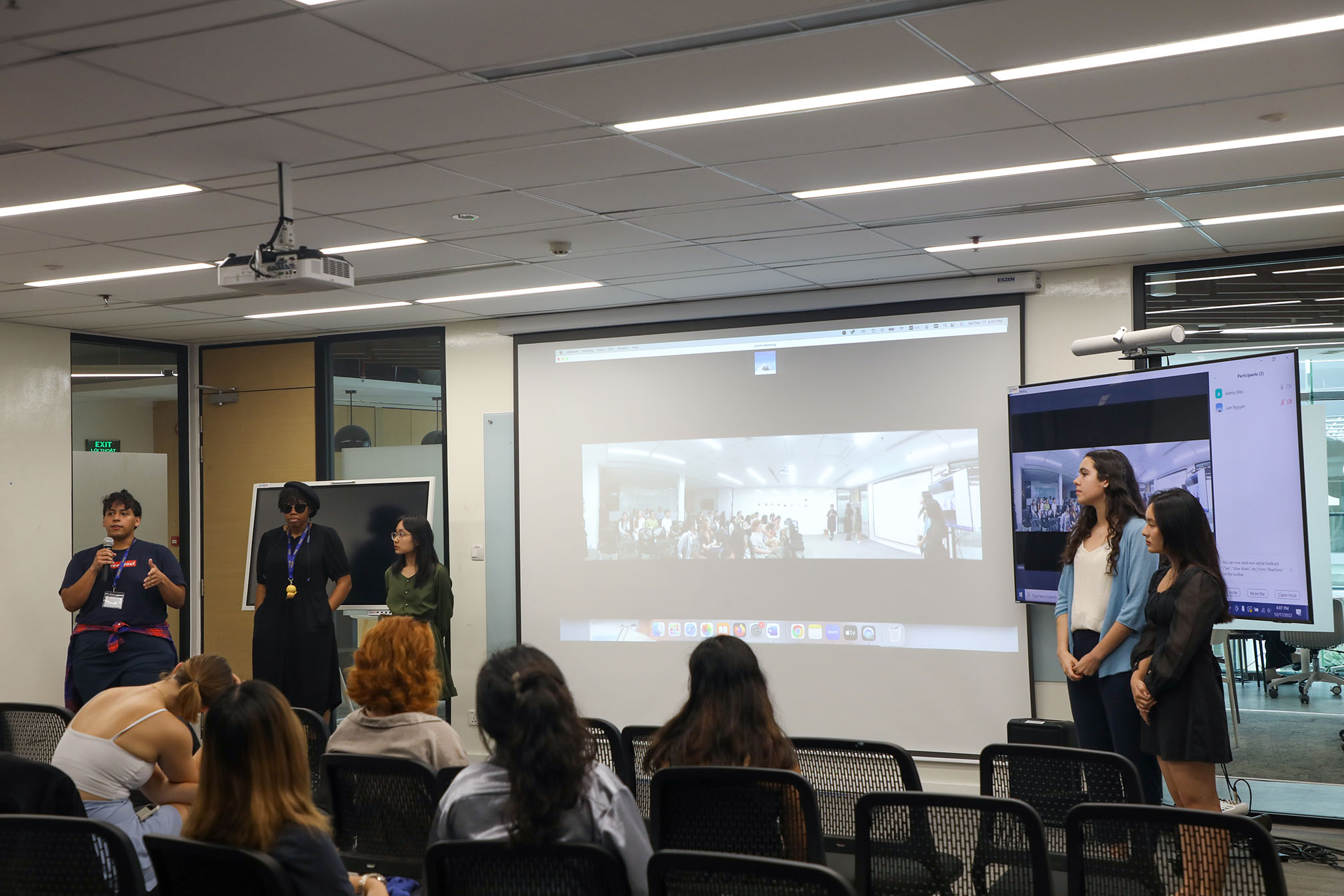
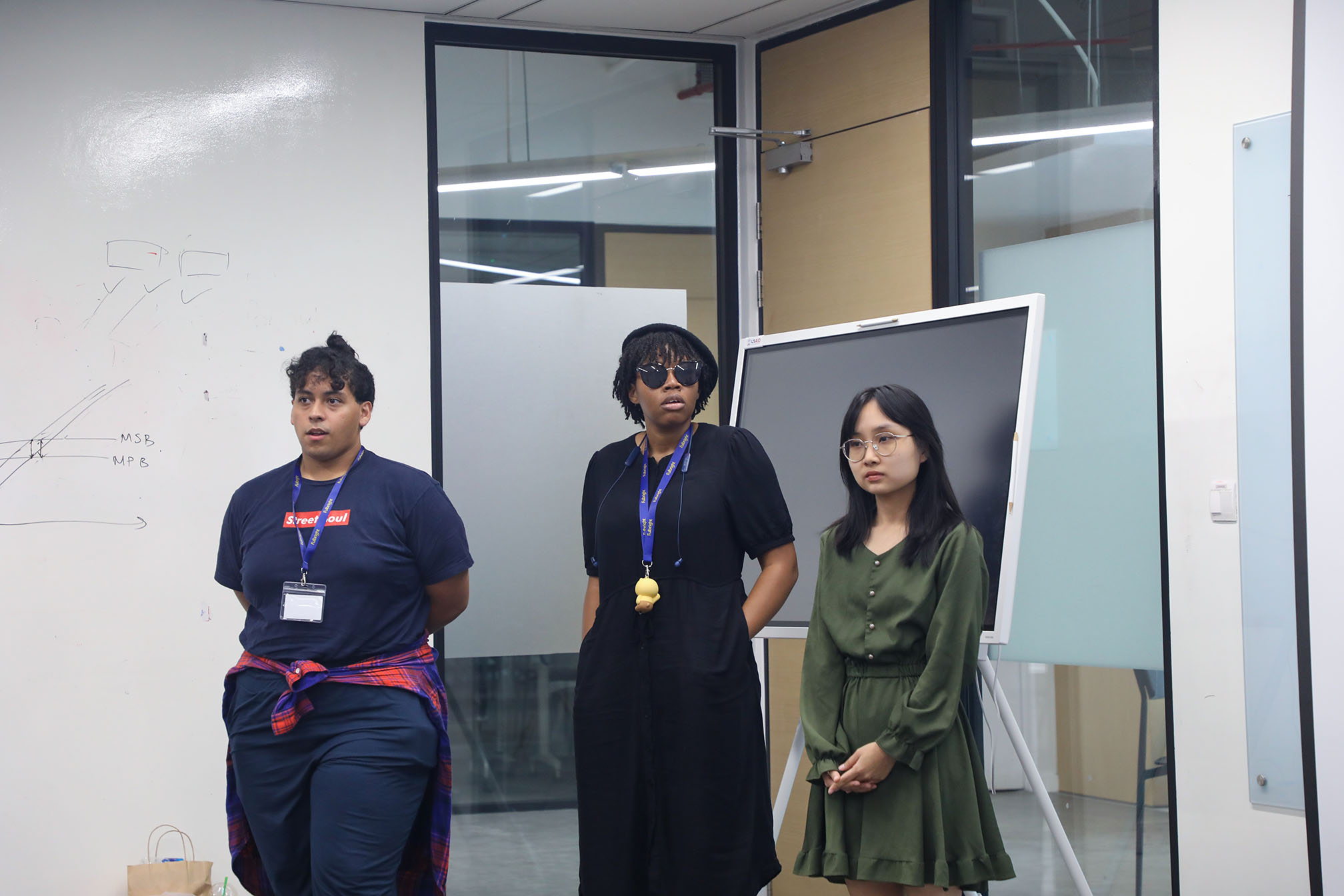
The Green Cats group studied environmental issues in Bến Tre province, highlighting the need for more equitable and sustainable approaches to mitigating saltwater intrusion in Vietnam amid a climate crisis driven by market-oriented development. They argued that any solutions must reconsider the relationship with nature and finite resources, and the impact on people’s lives.
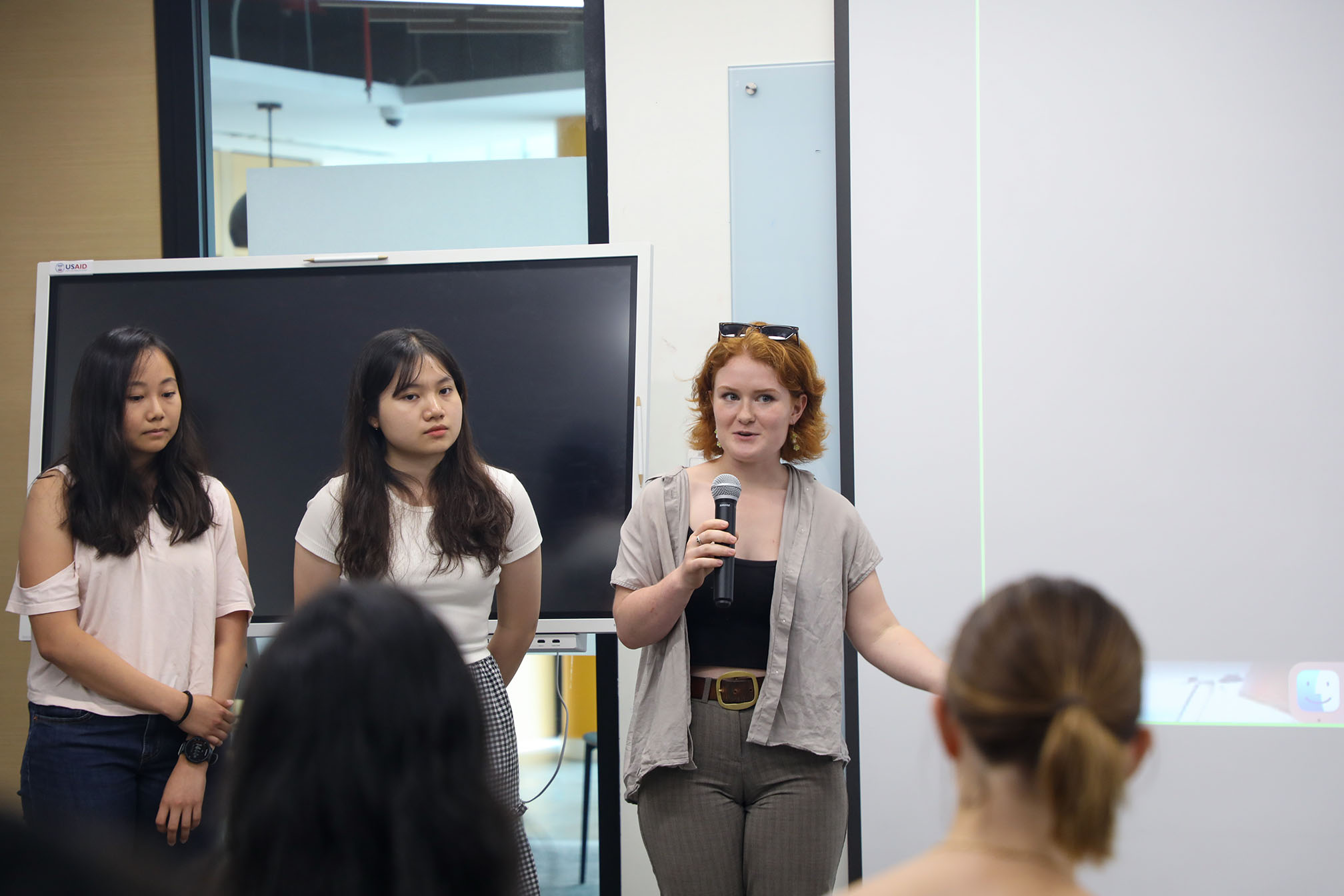
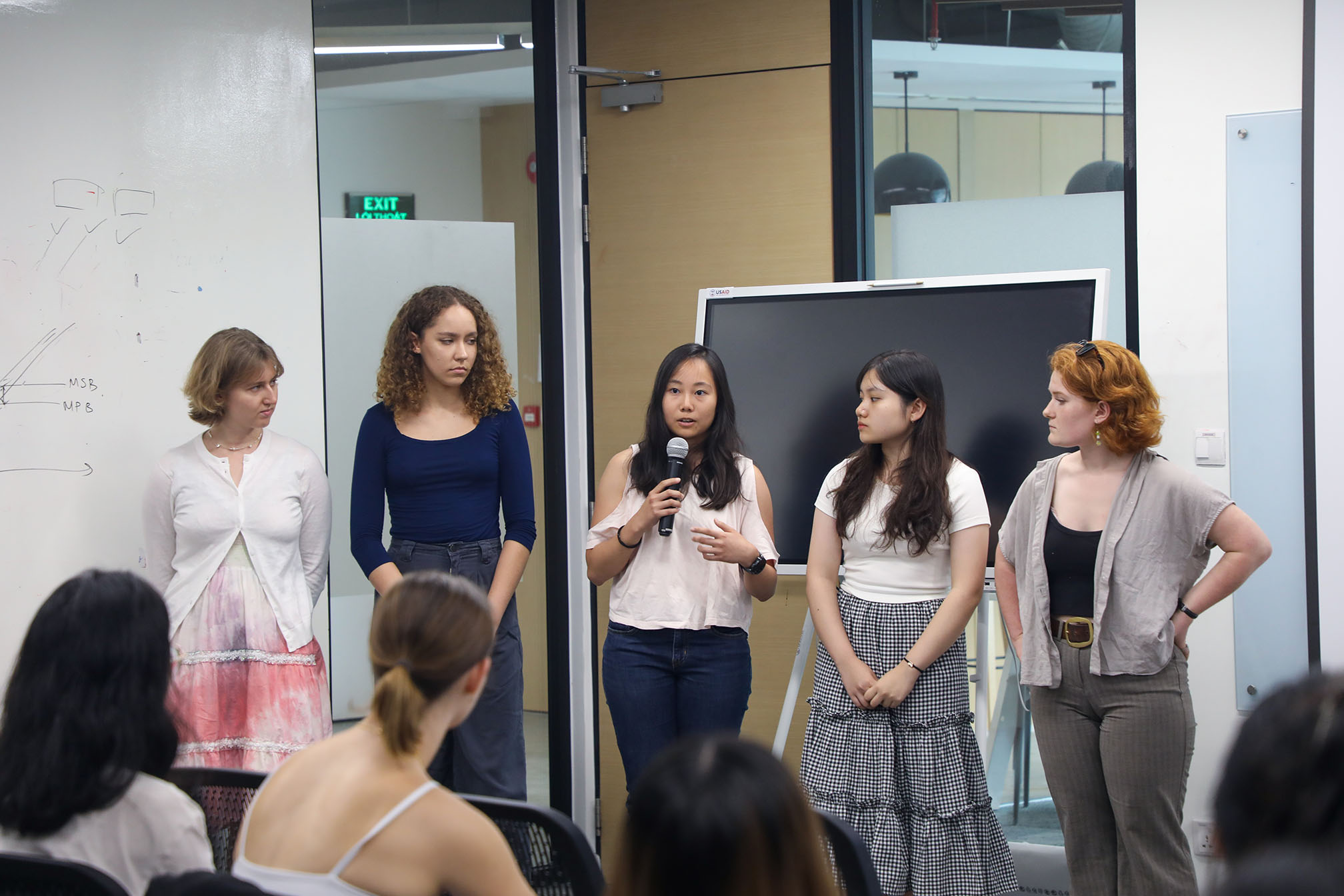
The History Chicks group researched the contributions of the Friday group, a group of thinkers from the old southern Vietnamese regime, to the ĐỔI MỚI reforms. The group’s proposed policies enabled the Communist Party of Vietnam to create a system called Market Leninism, combining a socialist political system with market institutions.
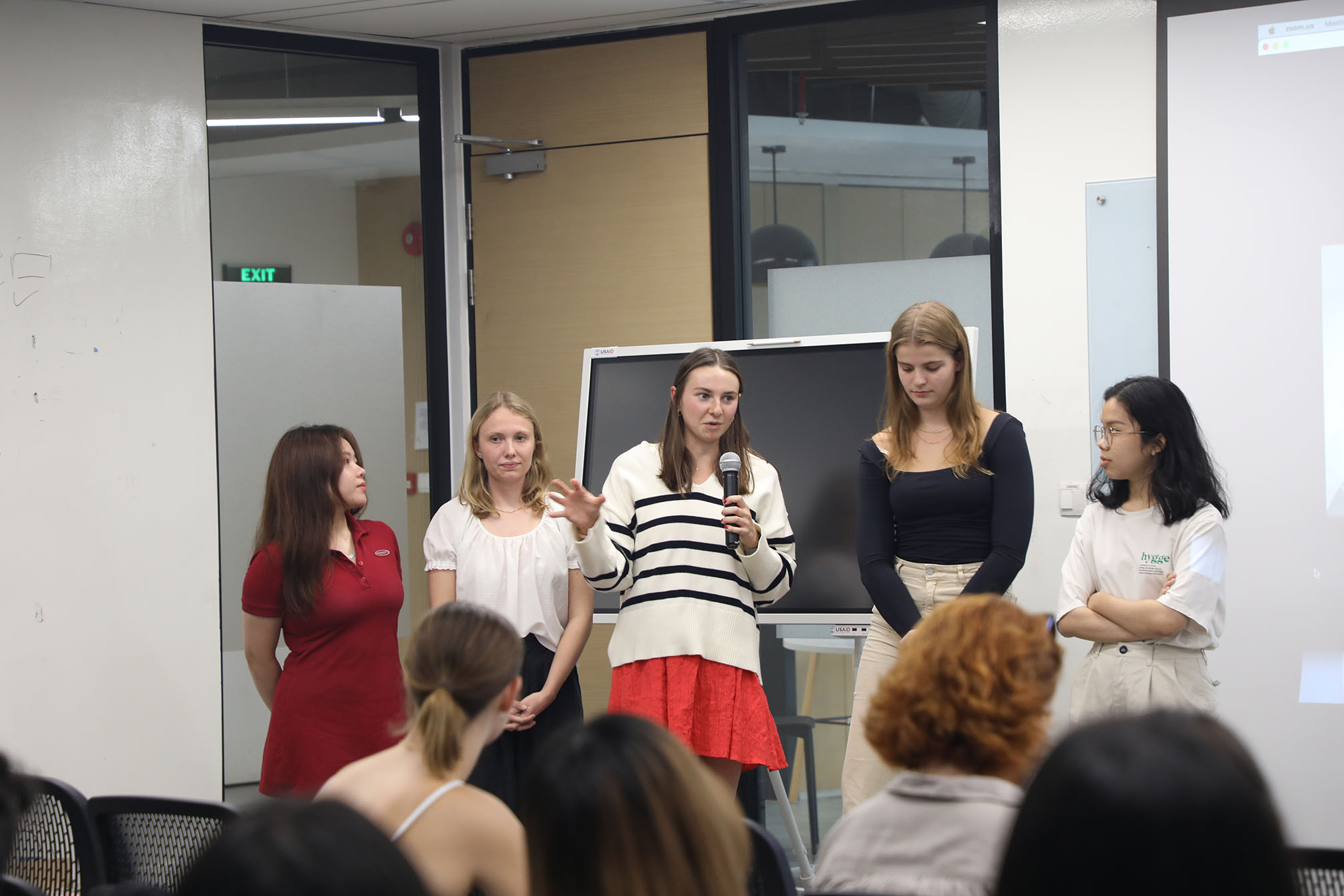
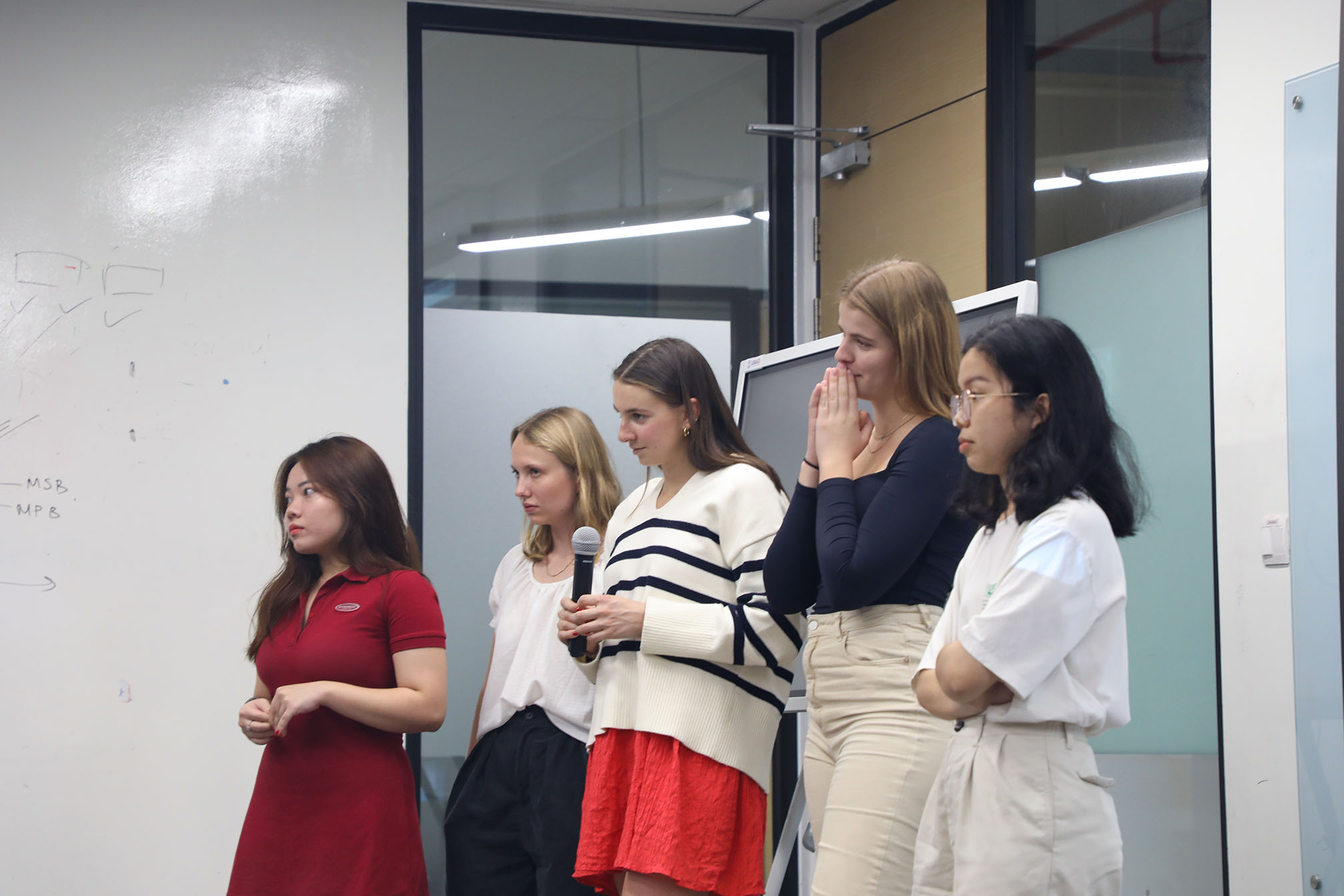
The Nuclei group examined the complex interactions among artists, curators, and the Vietnamese state over the exhibition of art in contemporary Vietnam. Meanwhile, the Vietnam Voyagers group traced the history and economics behind the emergence of the Phú Mỹ Hưng new urban zone and city center.
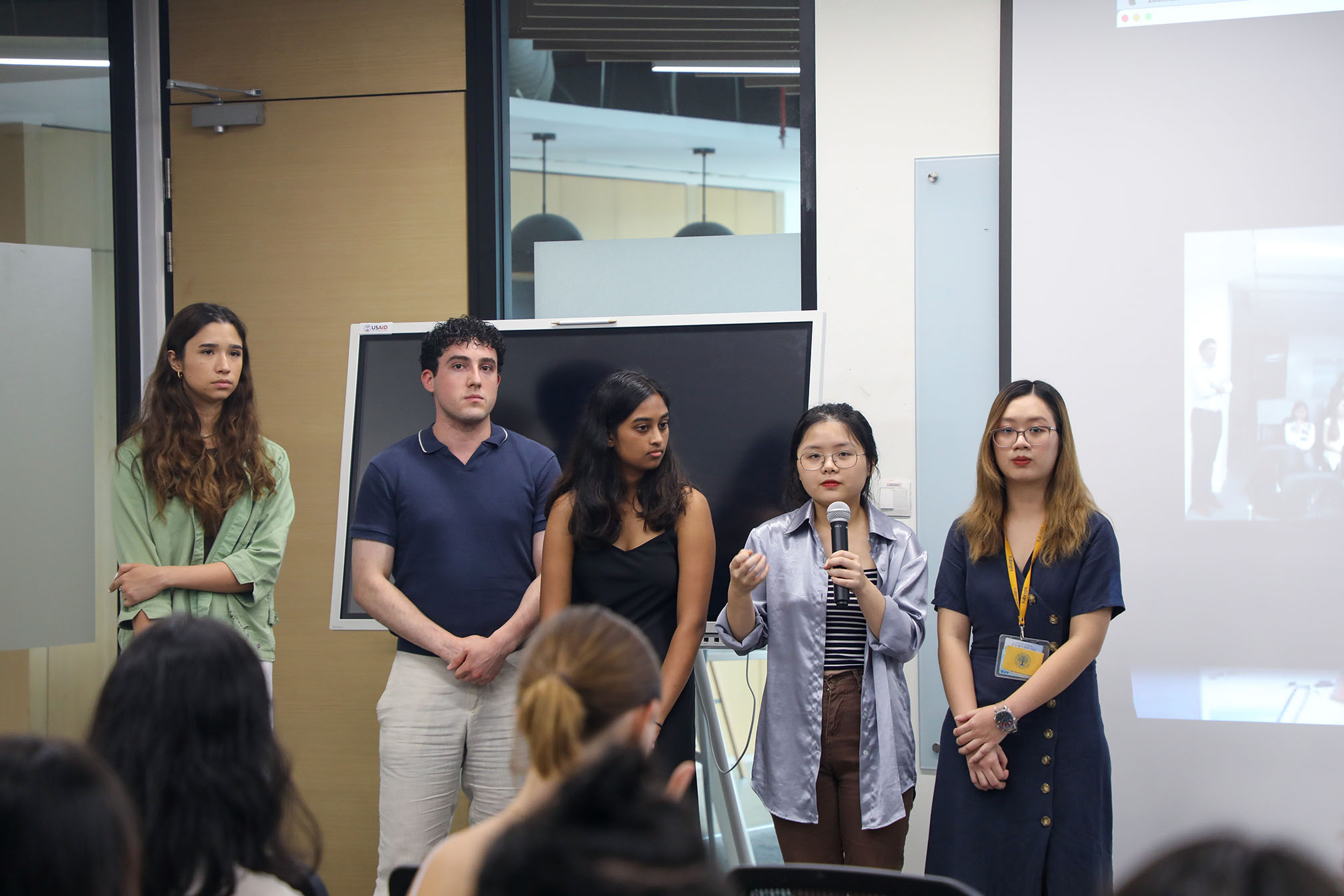
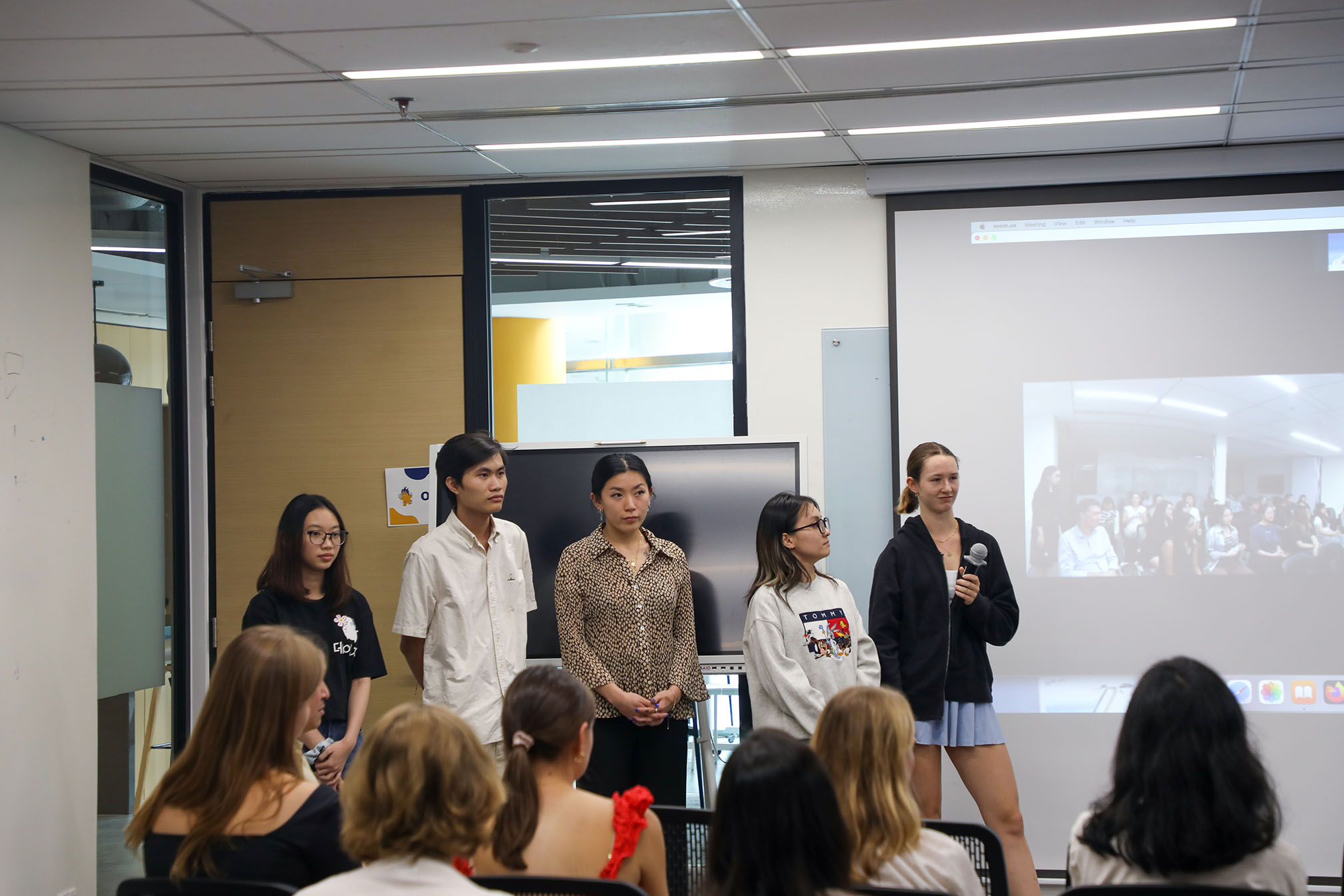
Their research findings revisited and, to some extent, challenged previous understandings of various aspects of contemporary Vietnam, laying the foundation for future research.
Utilizing digital humanities
“One of the goals of the course is to instruct students to produce films, and to show them that they can connect filmmaking to their academic interests. Many students think of film as only relating to Hollywood movies, but we want to demonstrate that film can be an academic medium – a method to learn and present research in a way that is engaging for people,” asserted Dr. Edward Miller. Such filmmaking assignments can be viewed as a digital mode for the production and distribution of knowledge, in contrast to traditional print media.
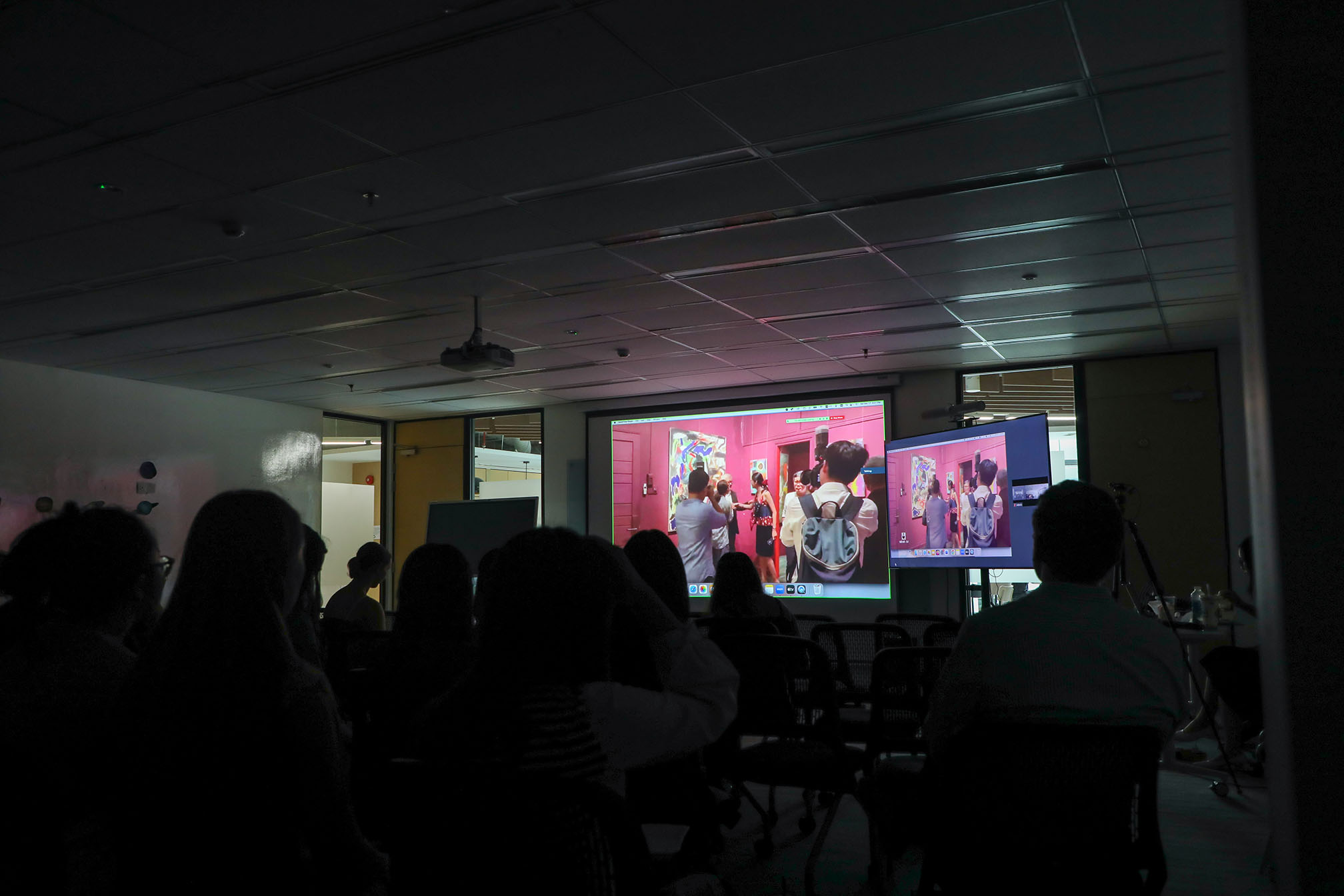
Both Dartmouth College and Fulbright University Vietnam are engaged in digital humanities projects aimed at creating new digital tools and methods to improve the accessibility and utility of historical archives.
The Vietnam Studies Center at Fulbright provides students with the opportunity to work on conference-based and long-term digital humanities projects. A dedicated group of students at the Vietnam Studies Center are working tirelessly to establish a cutting-edge Digital Humanities Lab. This student-run team, known as the Digital Humanities Core Team, has been gaining valuable insights by visiting and learning from the development of this scholarly activity at other institutions such as Hanoi National University and VinUniversity. Their hard work is paying off as they are all geared up to host prestigious international academic conferences on digital humanities in the coming spring semester. Earlier, at the recent conference on Đông Kinh Nghĩa Thục (Vietnam’s Tonkin Free School), Fulbright students were encouraged to take on the role of researchers, using creative methods such as digital maps, audio displays, and animated videos to reconstruct the past from historical archives.

Digital map at Đông Kinh Nghĩa Thục conference
Dartmouth students are working on the Dartmouth Digital History Initiative, under the supervision of Dr. Edward Miller, to develop new ways of researching, visualizing, analyzing, and representing the contents of digital oral history records. This initiative builds on the success of the Dartmouth Vietnam Project, an oral history project that has conducted more than 160 interviews with Dartmouth community members since 2014.
The partnership between the two universities also allows students working on these projects to engage in mutual learning and collaboration.
An Bình
___
About Dartmouth College
Dartmouth College is a private Ivy League research university in Hanover, New Hampshire, US.
Following a liberal arts curriculum, Dartmouth provides undergraduate instruction in 40 academic departments and interdisciplinary programs, including 60 majors in the humanities, social sciences, natural sciences, and engineering, and enables students to design specialized concentrations or engage in dual degree programs. With a student enrollment of about 6,700, Dartmouth is the smallest university in the Ivy League. Undergraduate admissions are highly selective.
About Fulbright University Vietnam
Fulbright University Vietnam is Vietnam’s first independent, not-for-profit, liberal arts university. Globally integrated but deeply embedded in Vietnamese society, Fulbright is dedicated to providing a world-class education, utilizing the latest advancements in institutional design, teaching, learning, technology and other fields to create an institution that is both innovative and globally relevant. Importantly, Fulbright is committed to serving Vietnamese society through rigorous research and responsible civic engagement.
___
